50 facts and figures about D-Day
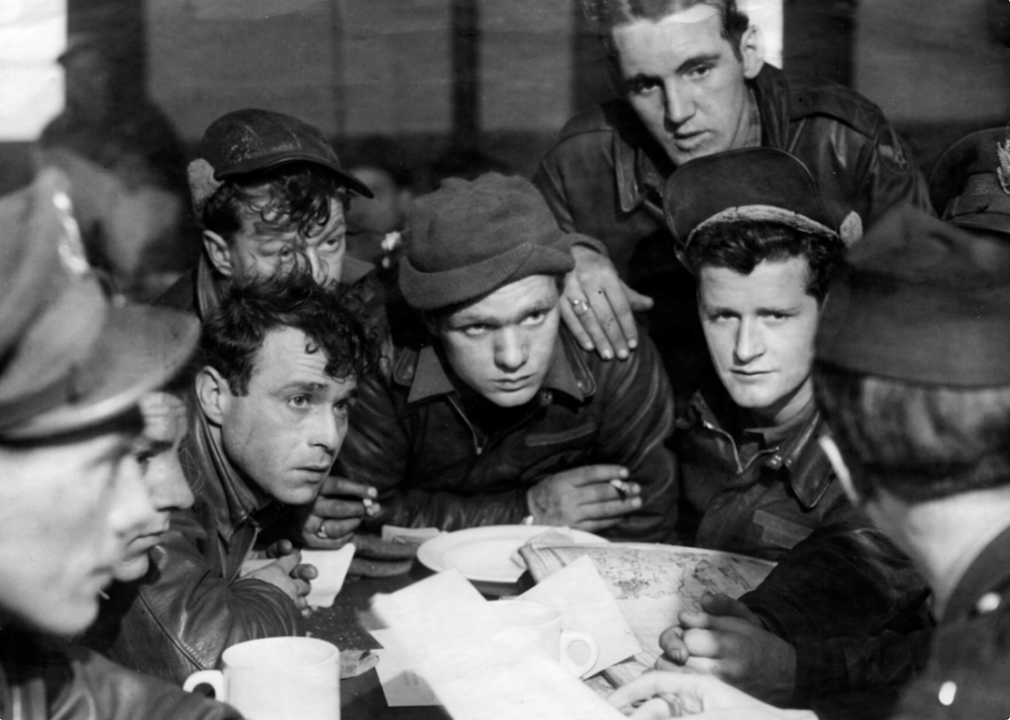
Mirrorpix via Getty Images
50 facts and figures about D-Day
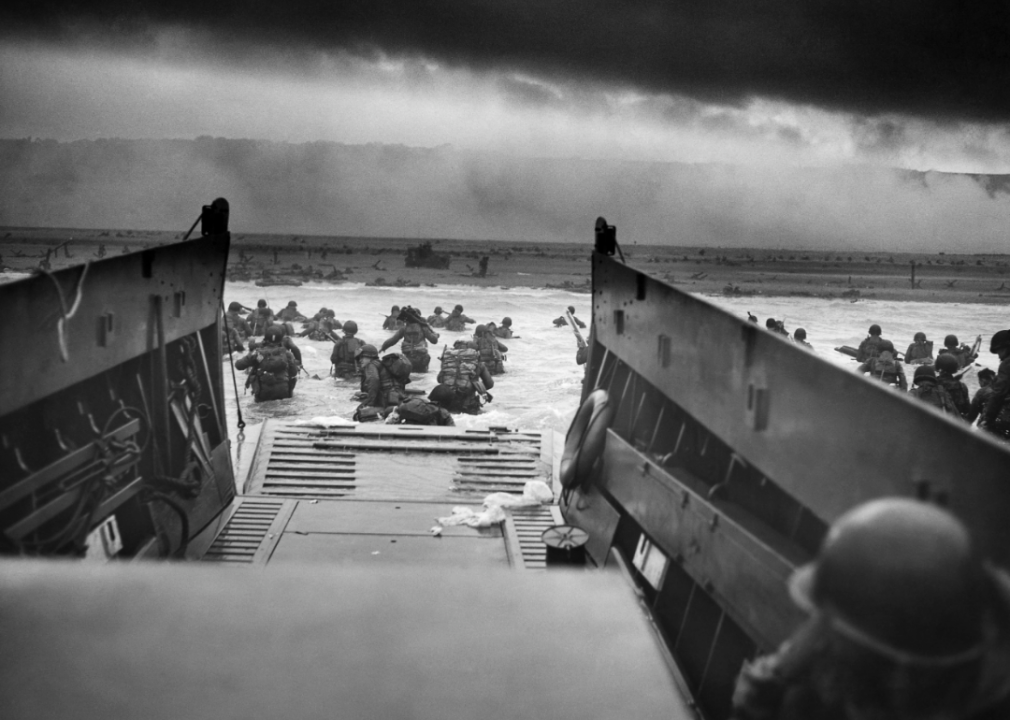
Robert F. Sargent // Wikimedia Commons
It was the largest amphibious assault in history
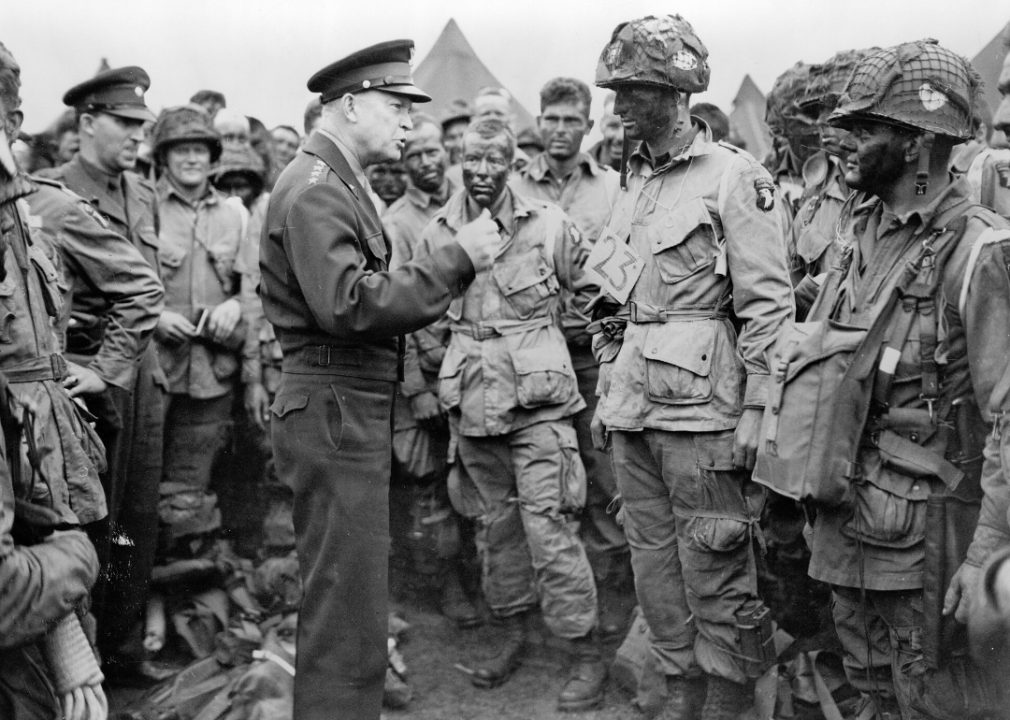
Universal History Archive/UIG via Getty images
The ‘D’ in D-Day is redundant
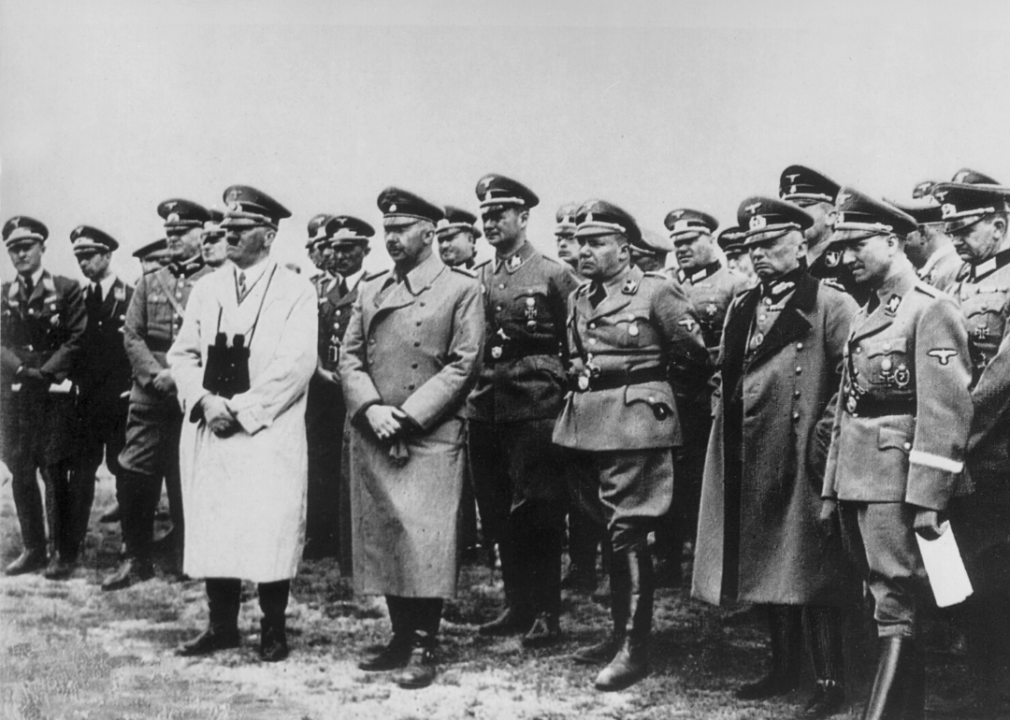
Hulton Archive // Getty Images
Secrecy and deception were key
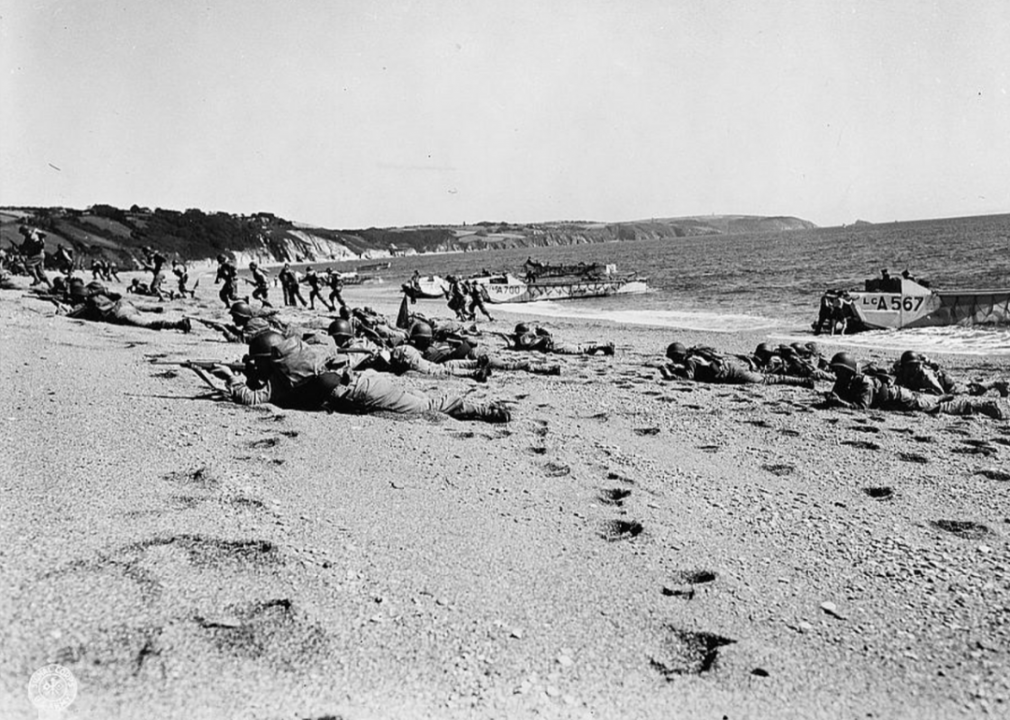
Library of Congress // Wikimedia Commons
The practice run turned deadly
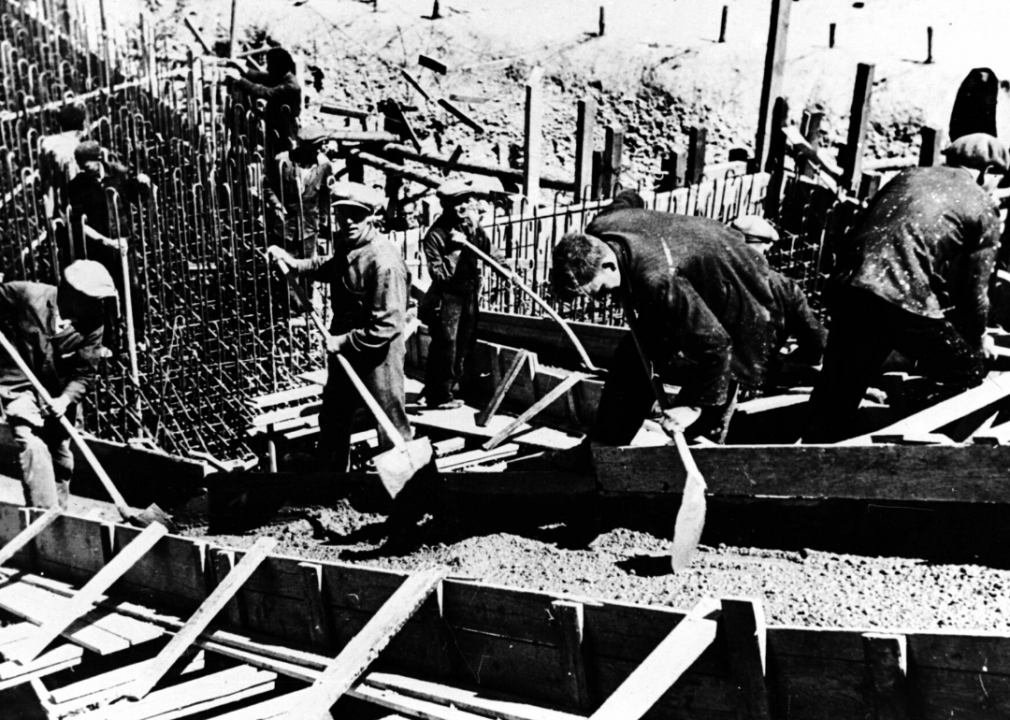
Roger Viollet via Getty Images
German defenses were the war’s biggest construction project
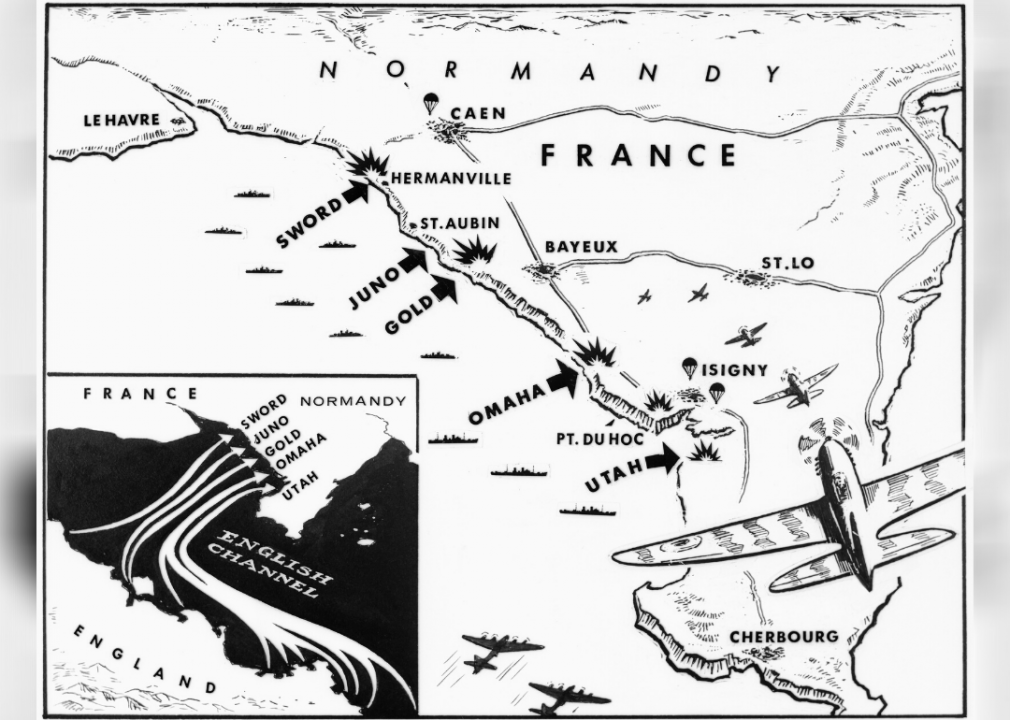
Bettmann // Getty Images
Forces landed on 5 code-named beaches
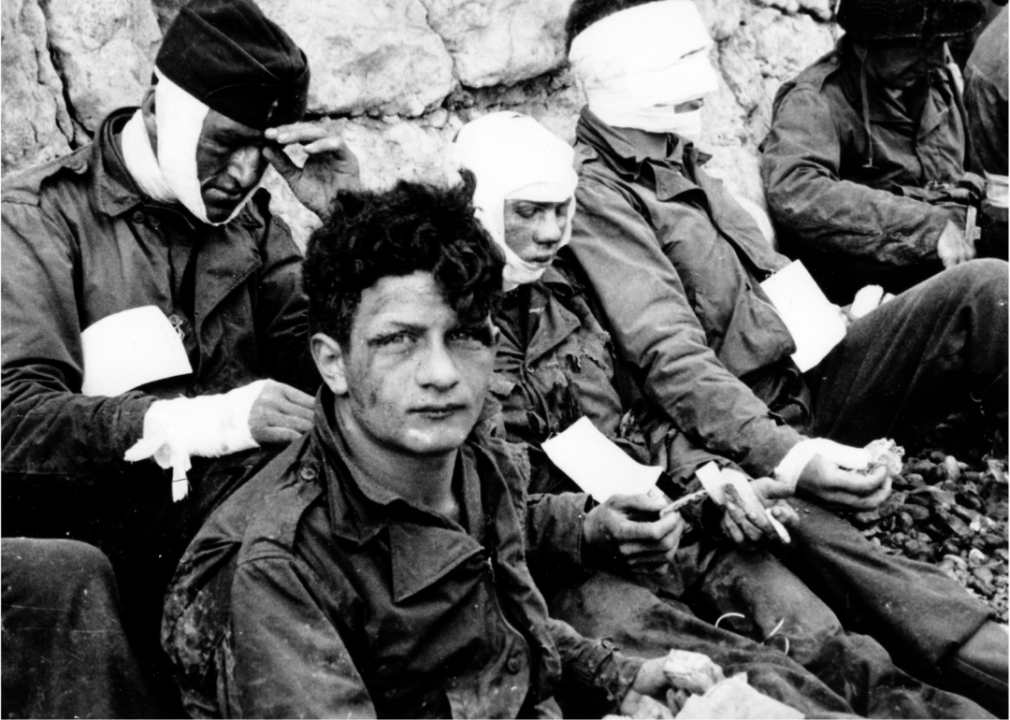
U.S. Army Signal Corps // Wikimedia Commons
Omaha Beach was the hardest fought
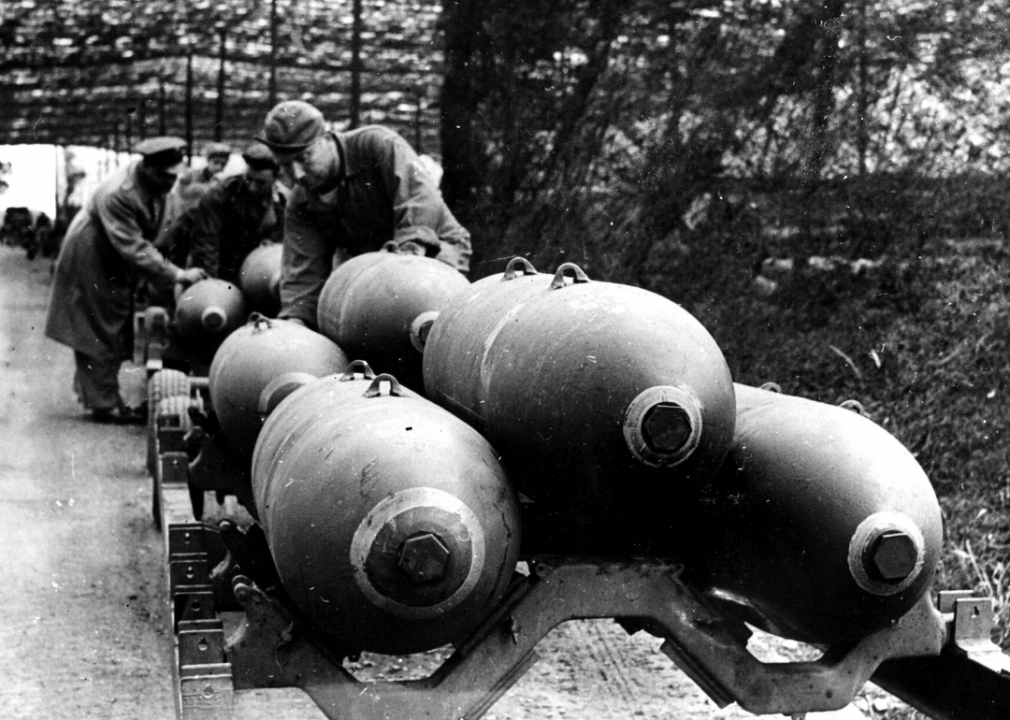
Photo12/UIG // Getty Images
A massive bombardment preceded the invasion
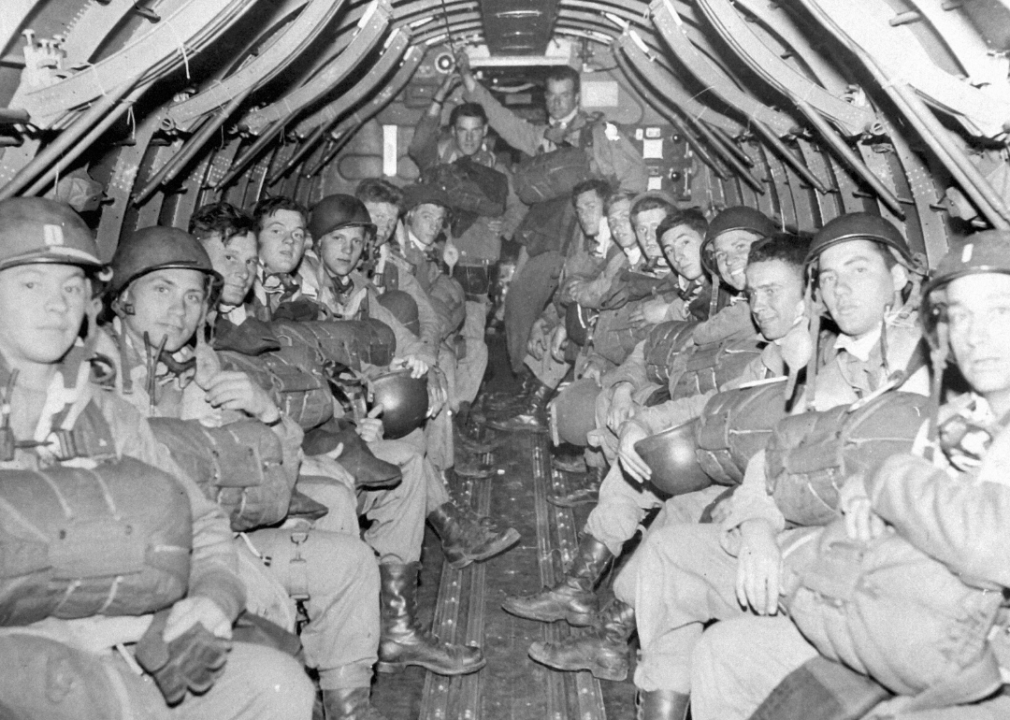
Photo12/UIG // Getty Images
Thousands of paratroopers landed first
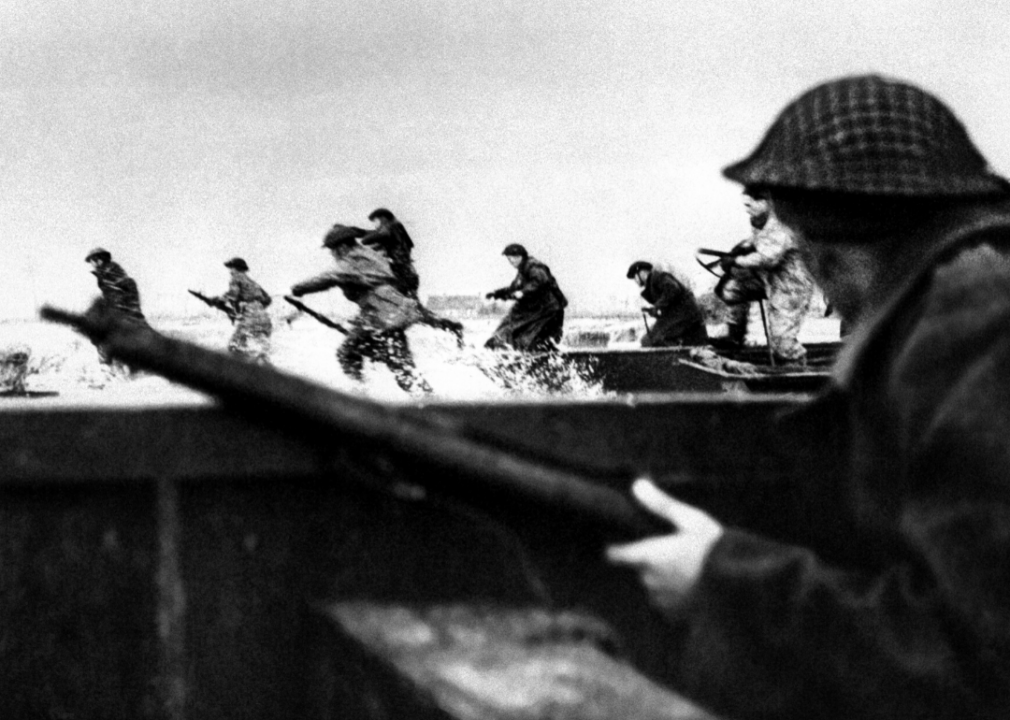
AFP via Getty Images
Canadian forces captured the most ground
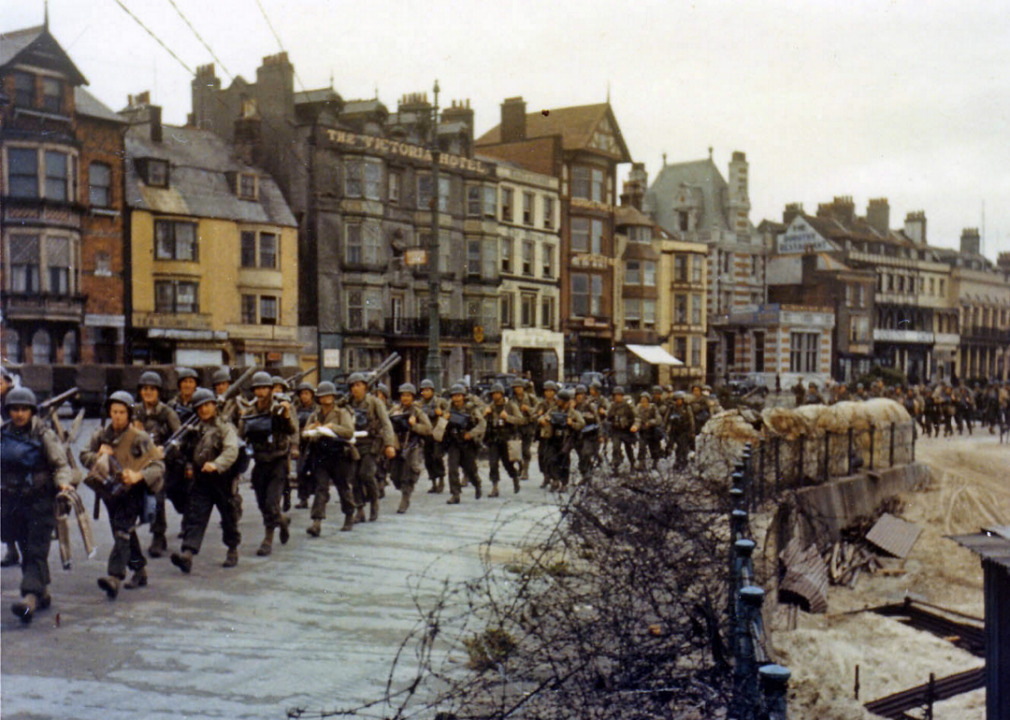
Universal History Archive/Universal Images Group via Getty Images
The operation had a code name
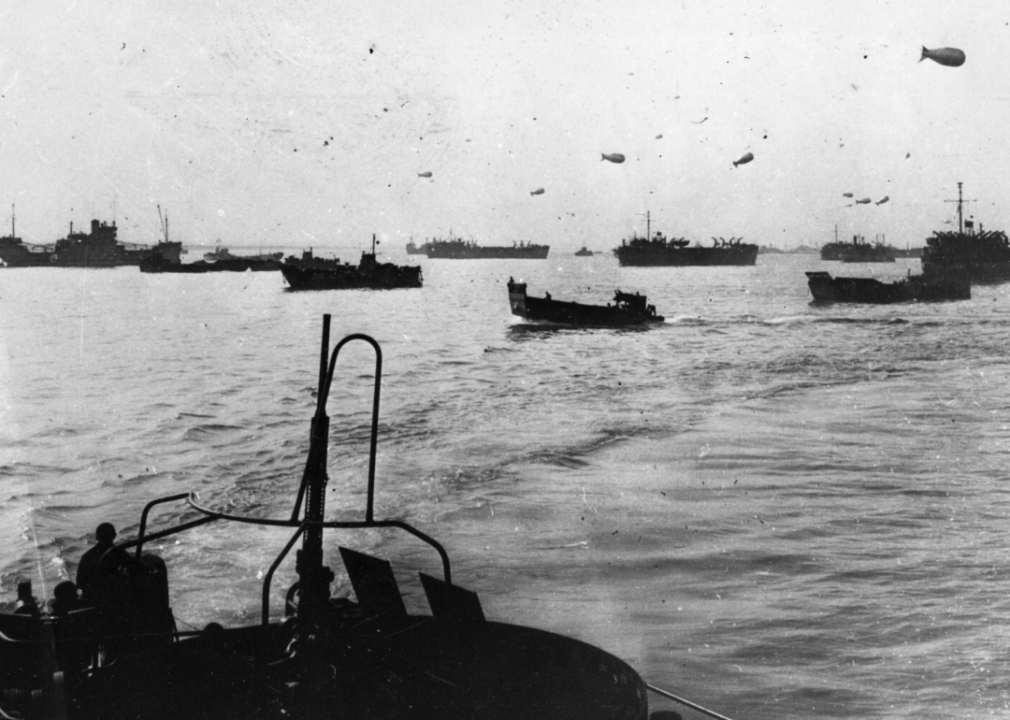
Keystone/Hulton Archive // Getty Images
D-Day involved nearly 7,000 Allied ships…
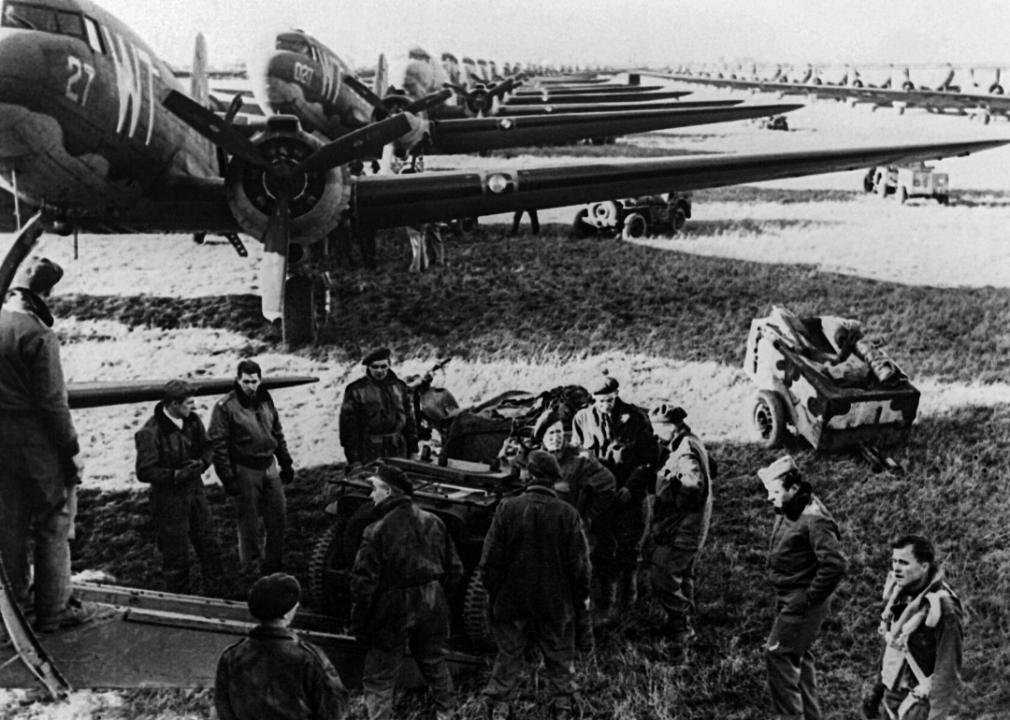
AFP via Getty Images
…and more than 11,500 Allied aircraft
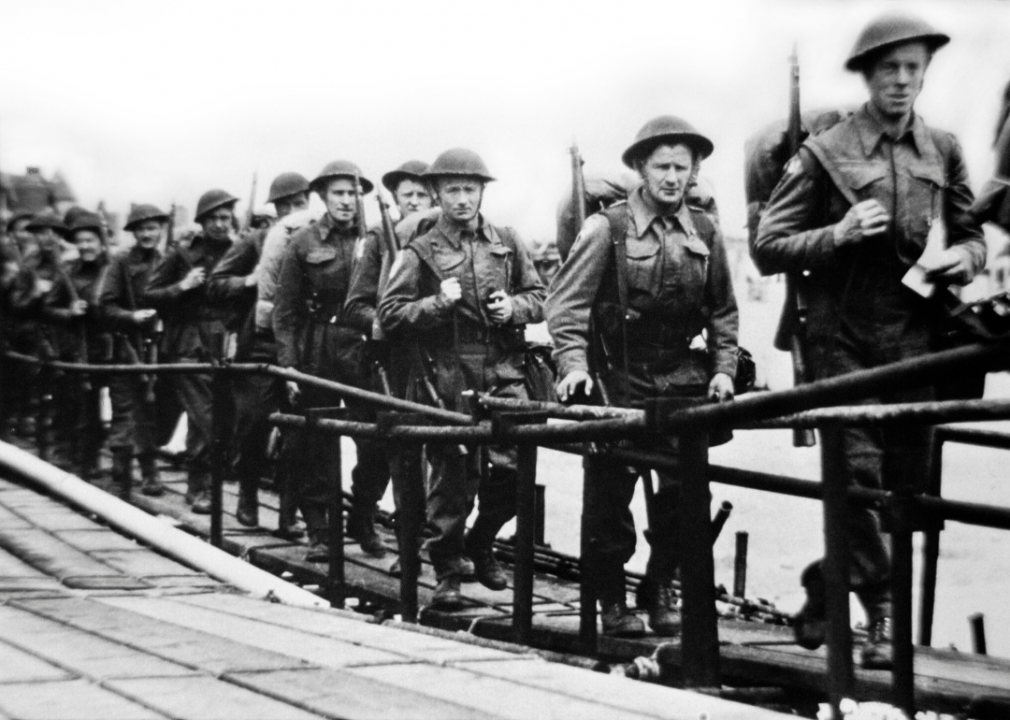
AFP via Getty Images
There were 73,000 American troops at D-Day
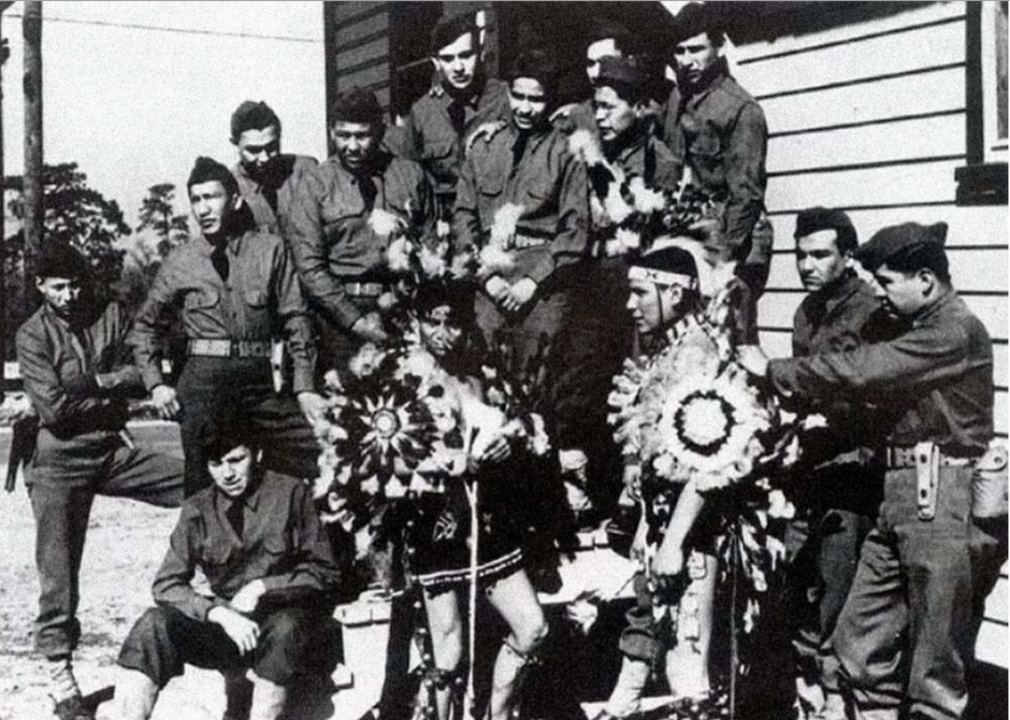
U.S. Army // Wikimedia Commons
Comanche ‘code-talkers’ joined the siege
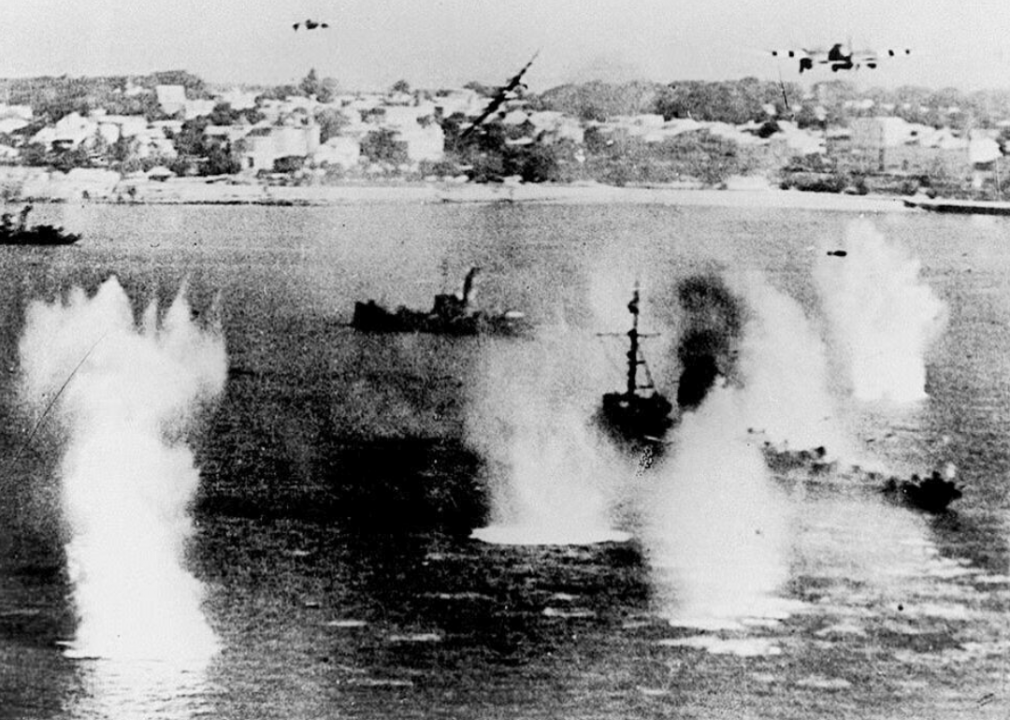
AFP via Getty Images
The Allies faced 50,000 German defenders
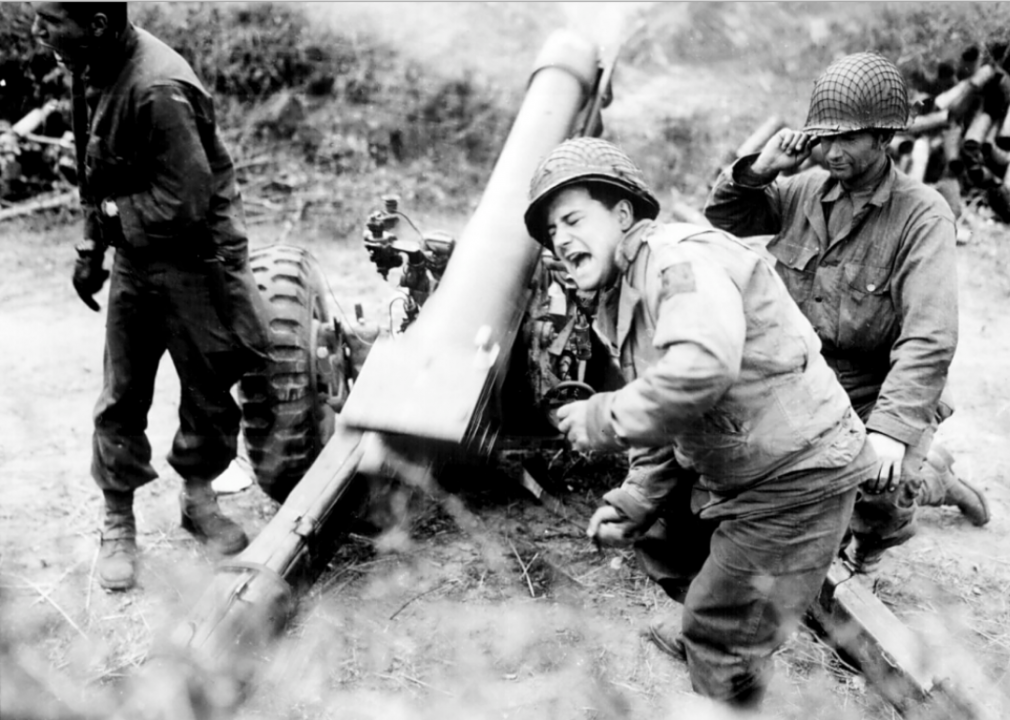
U.S. National Archives // Wikimedia Commons
The battle lasted until August
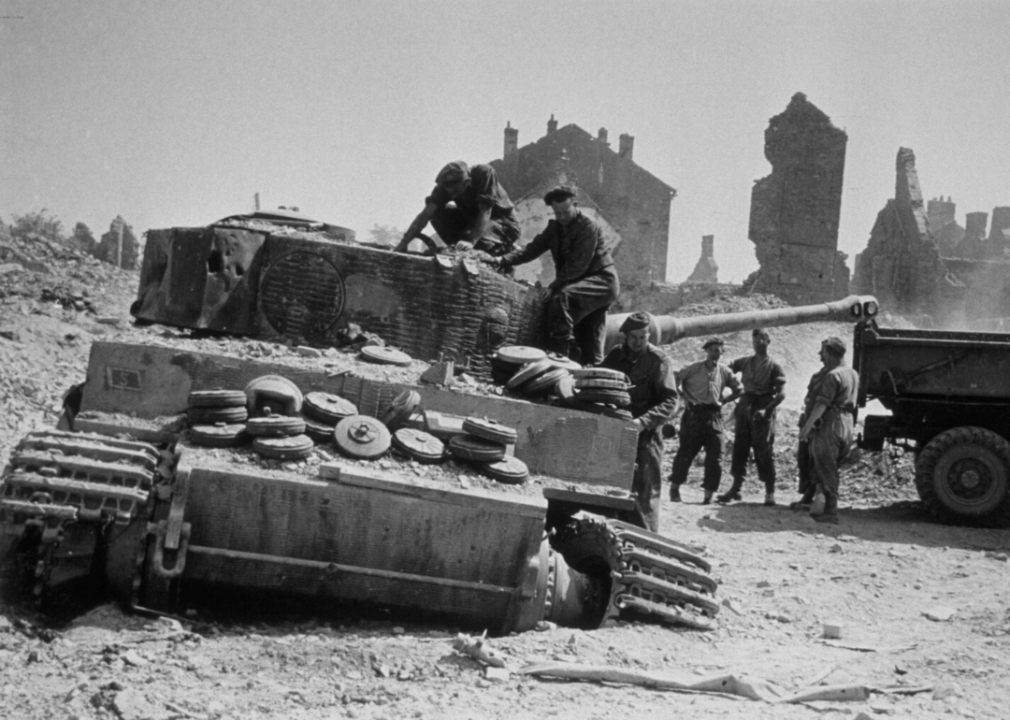
Leonard McCombe/Picture Post/Hulton Archive // Getty Images
The exact number of fallen is unknown
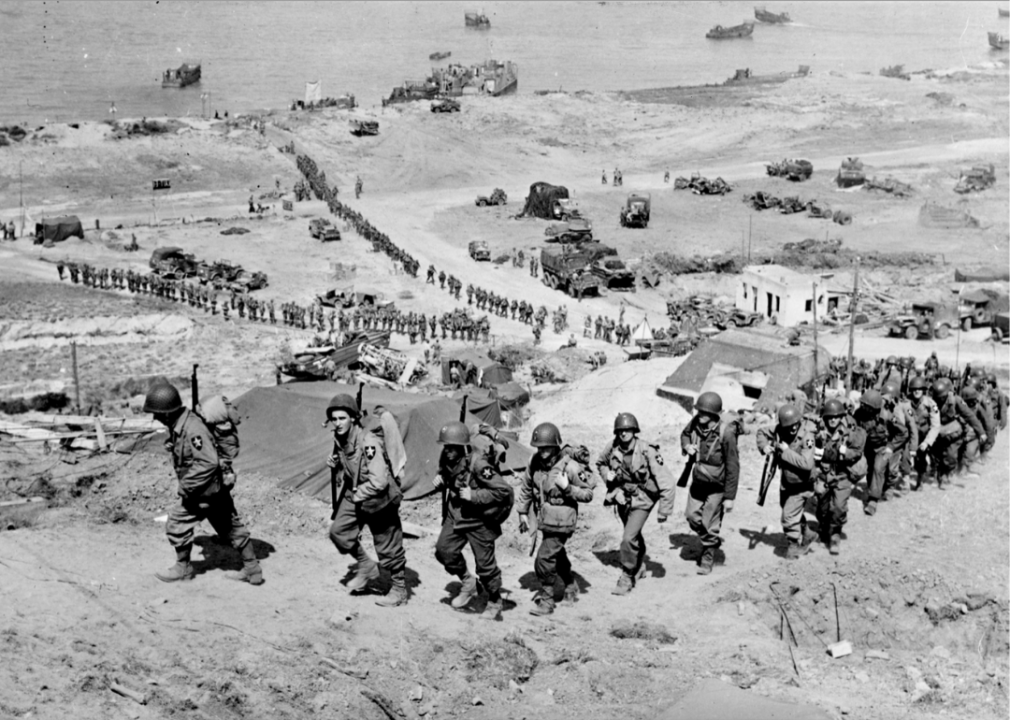
U.S. Army Signal Corps // Wikimedia Commons
Most Allied troops arrived after D-Day
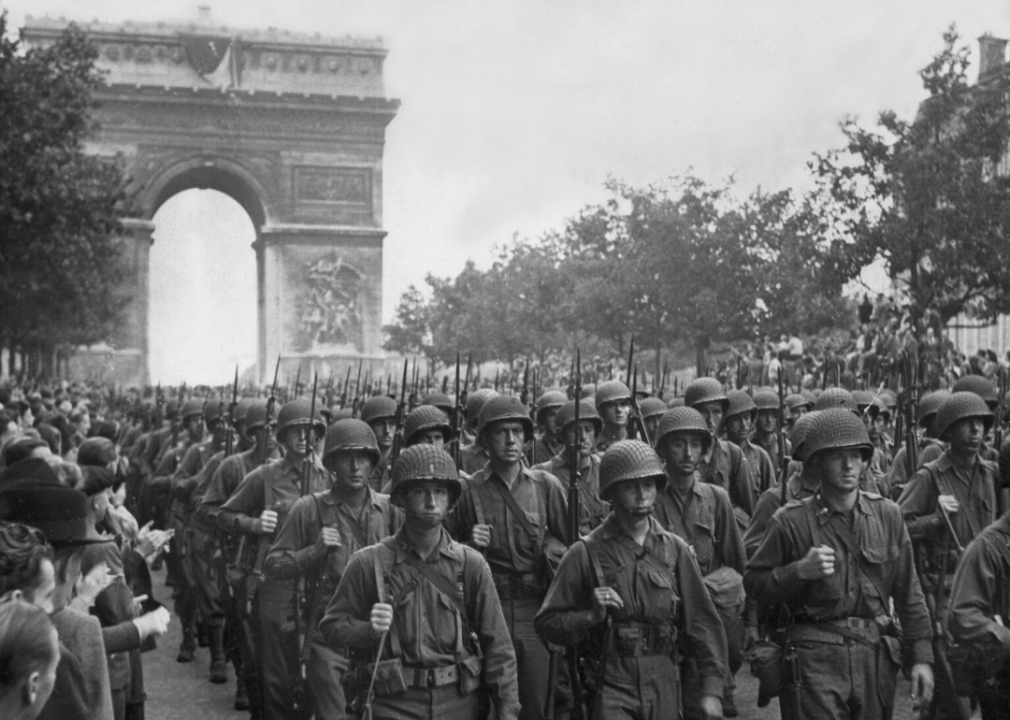
Hulton Archive // Getty Images
The operation led to the liberation of Paris
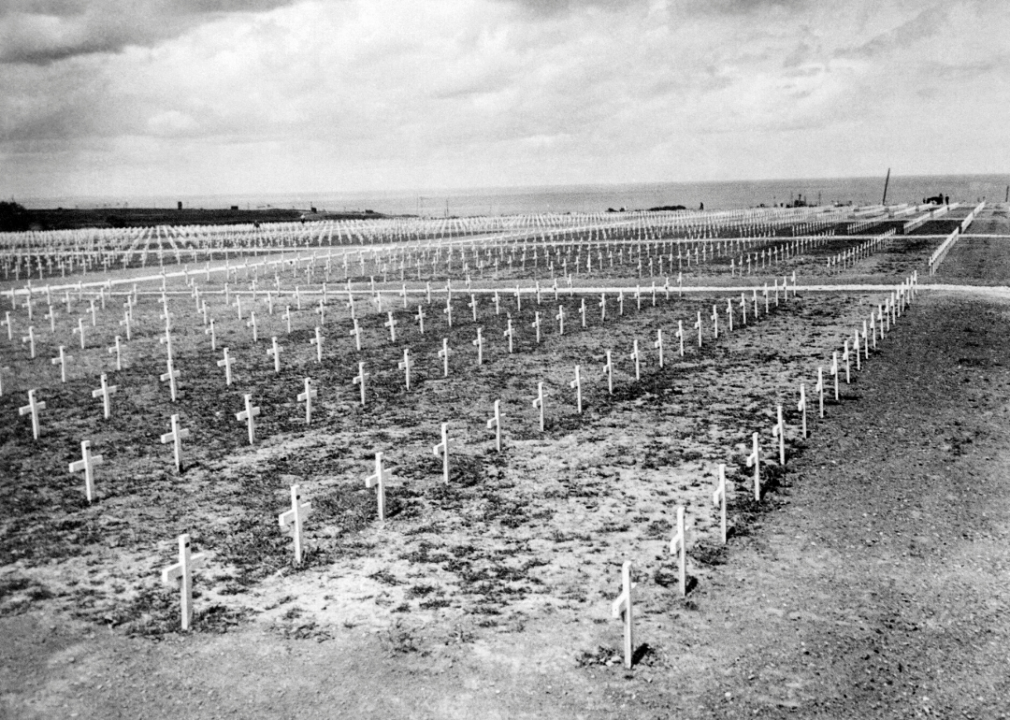
Keystone-France/Gamma-Rapho via Getty Images
A memorial cemetery sits on US soil in France
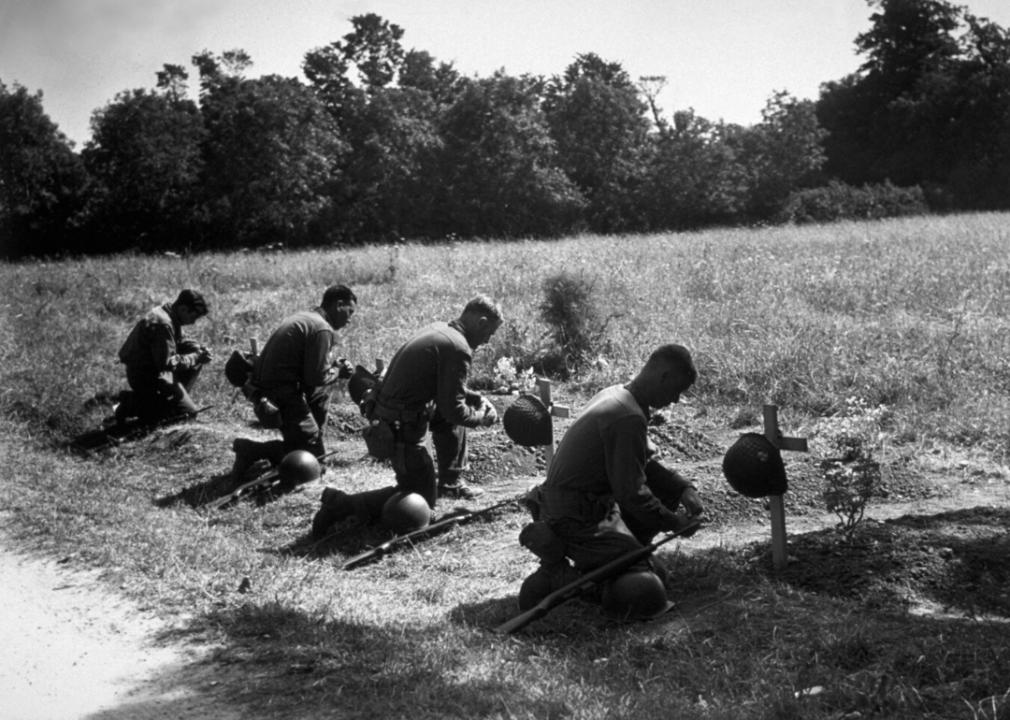
Fred Ramage/Keystone/Hulton Archive // Getty Images
Families fought—and died—together
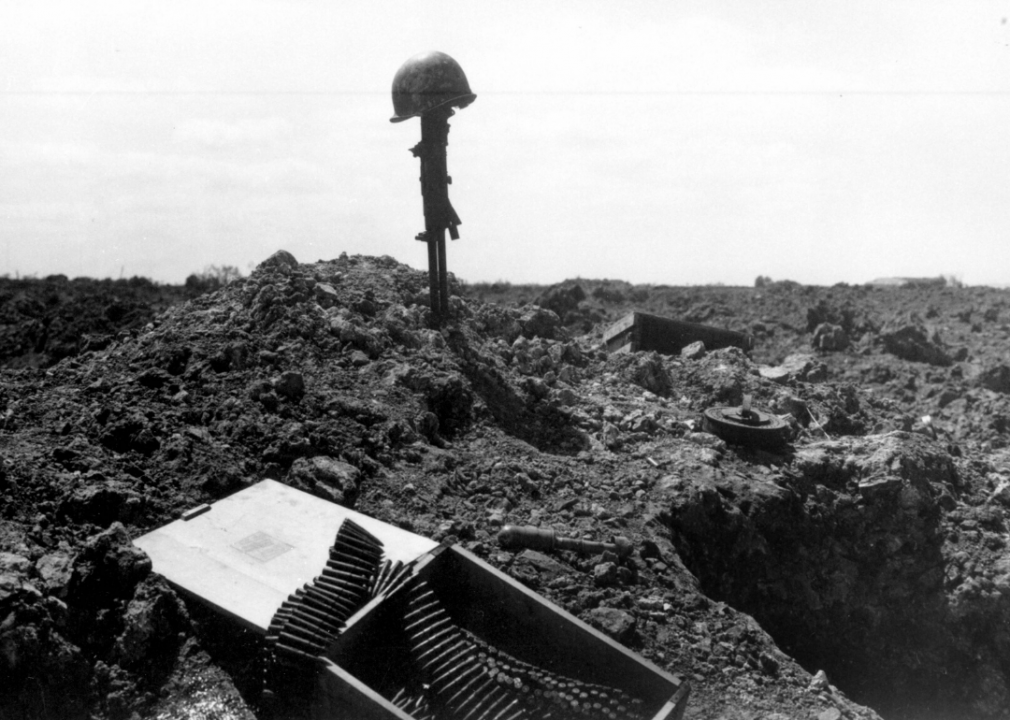
Roger Viollet via Getty Images
Around 14,000 corpses were returned home
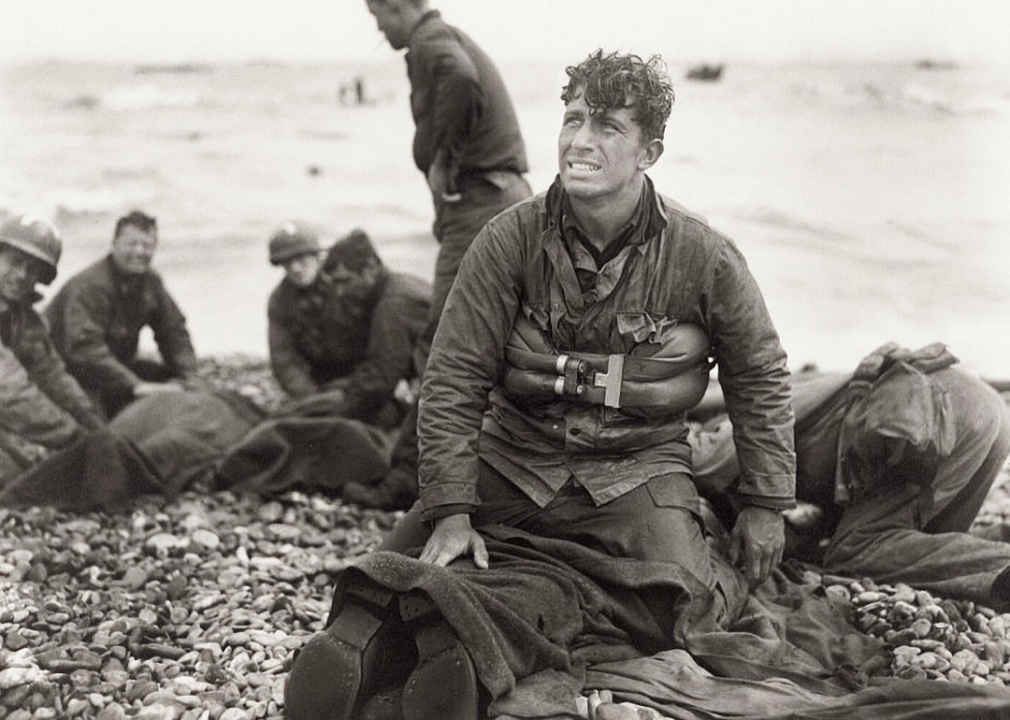
Walter Rosenblum/U.S. Army Signal Corps/Galerie Bilderwelt // Getty Images
The Allies lost more than 11% of their troops
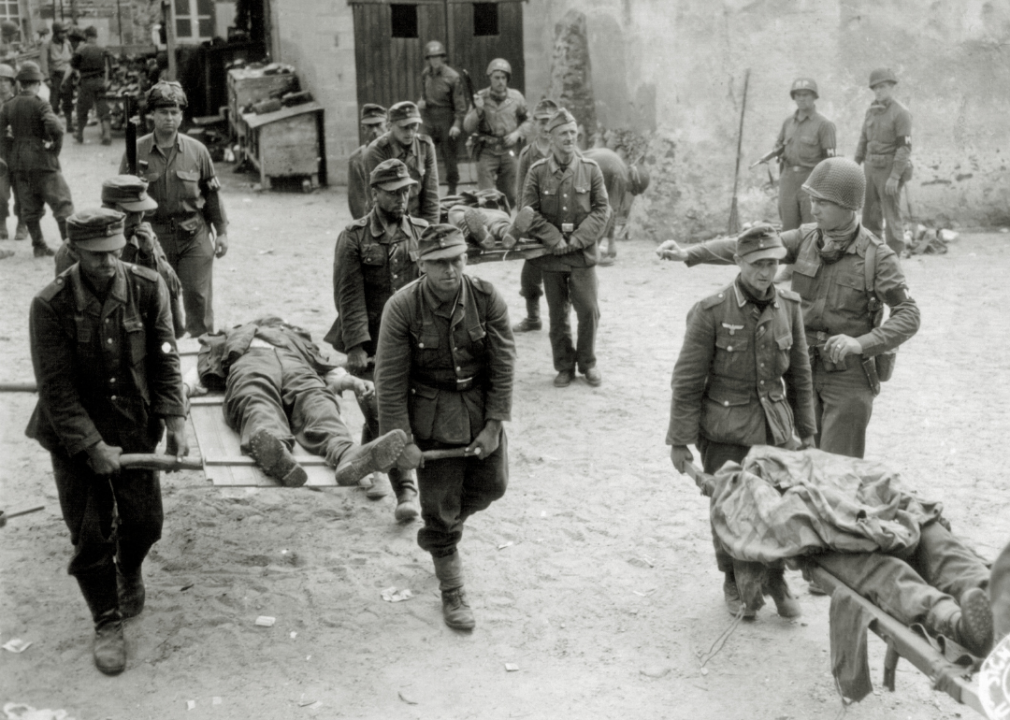
Galerie Bilderwelt // Getty Images
German casualties exceeded 240,000
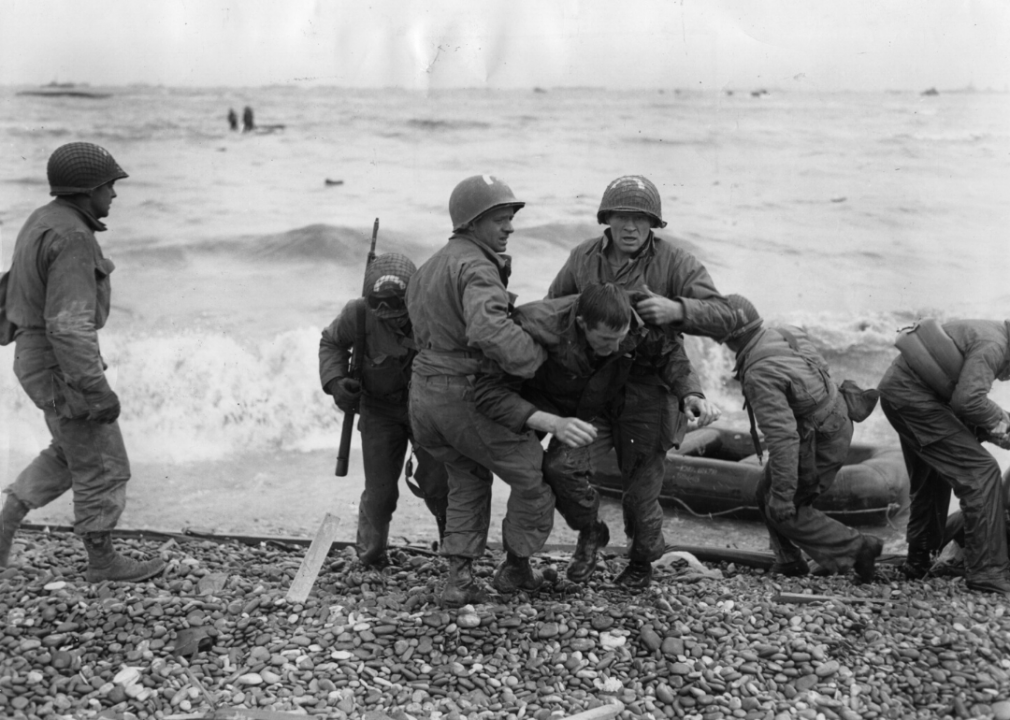
Fox Photos // Getty Images
The action was far from consistent
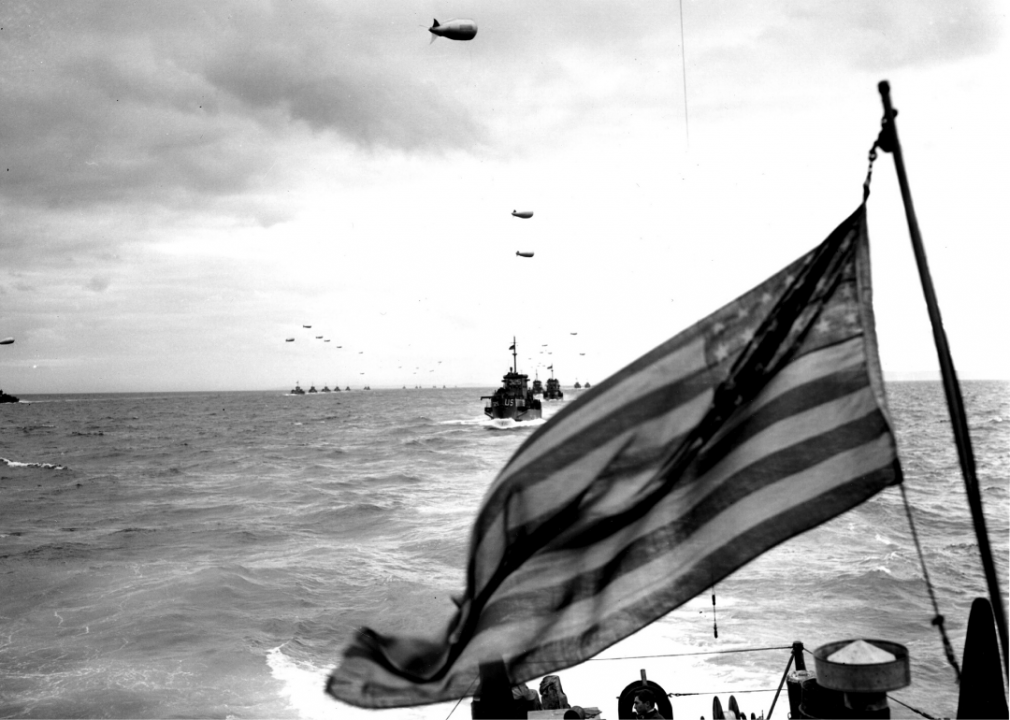
PhotoQuest // Getty Images
The tide was a double-edged sword
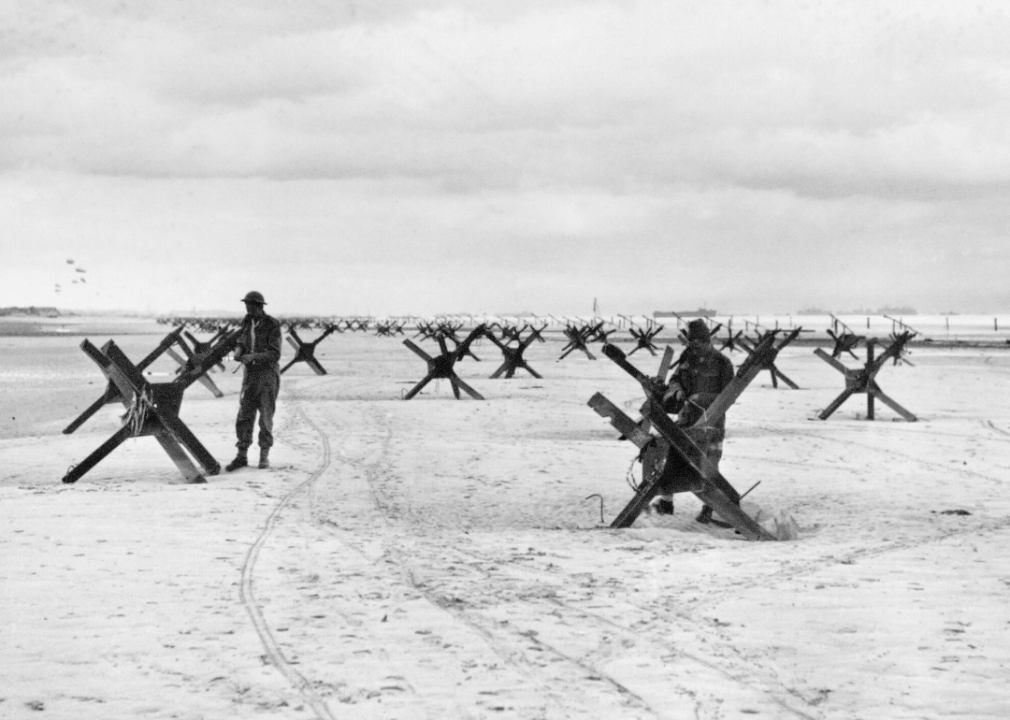
AFP via Getty Images
The beach was a minefield
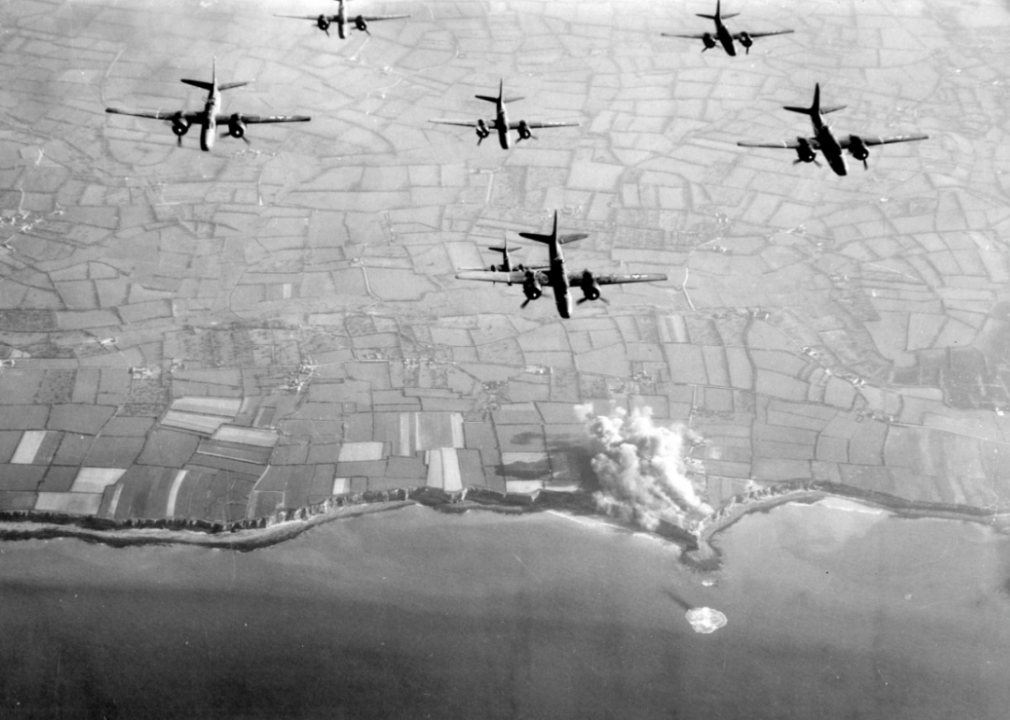
Public Domain // Wikimedia Commons
D-Day was the result of trial and error
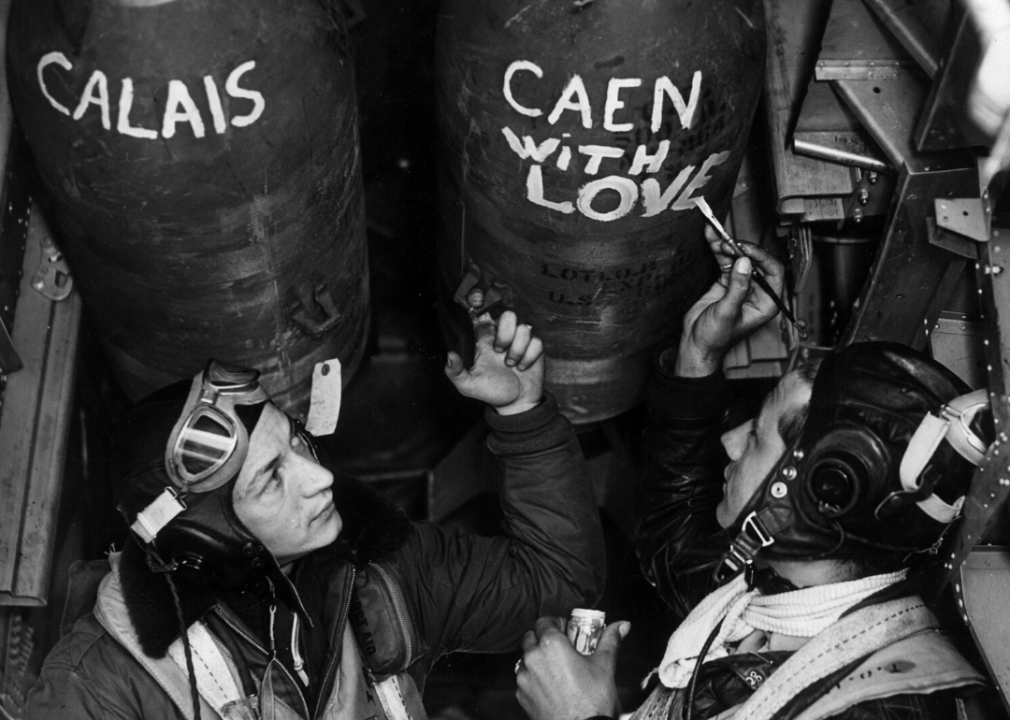
Reg Speller/Fox Photos // Getty Images
The Germans almost guessed it right
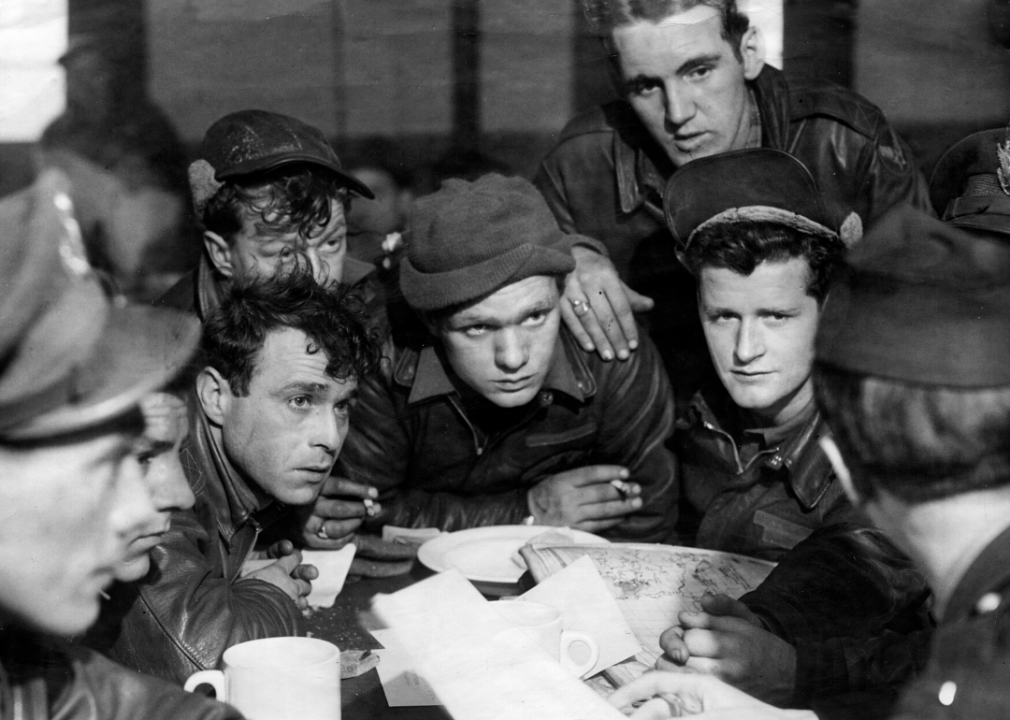
Mirrorpix via Getty Images
It was supposed to happen a month earlier
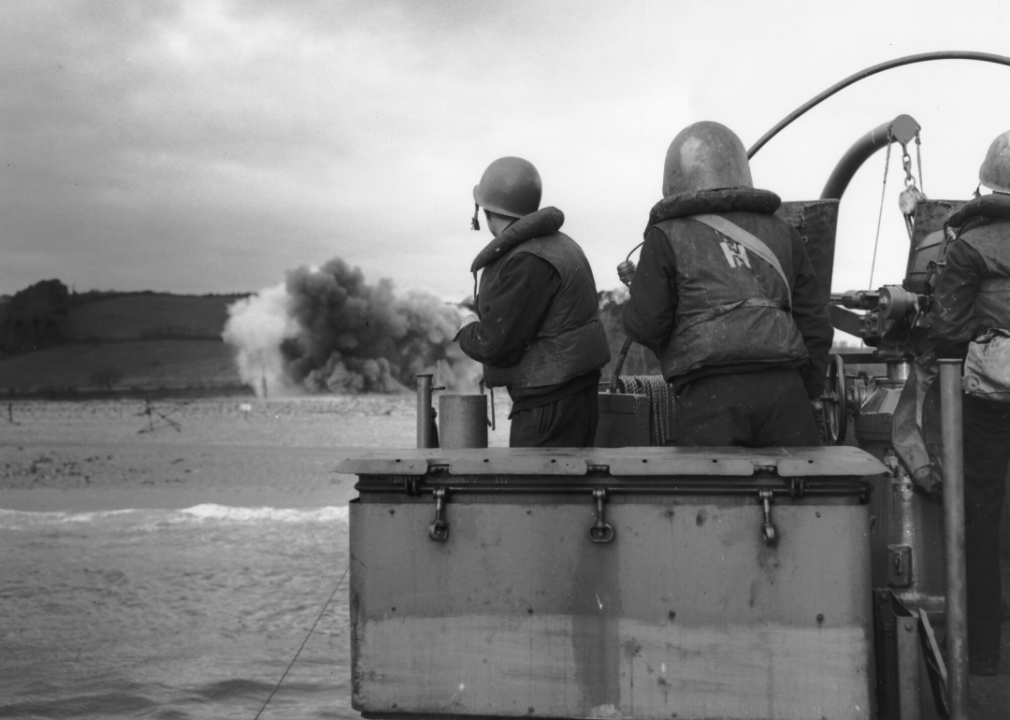
PhotoQuest // Getty Images
Nature played a key role
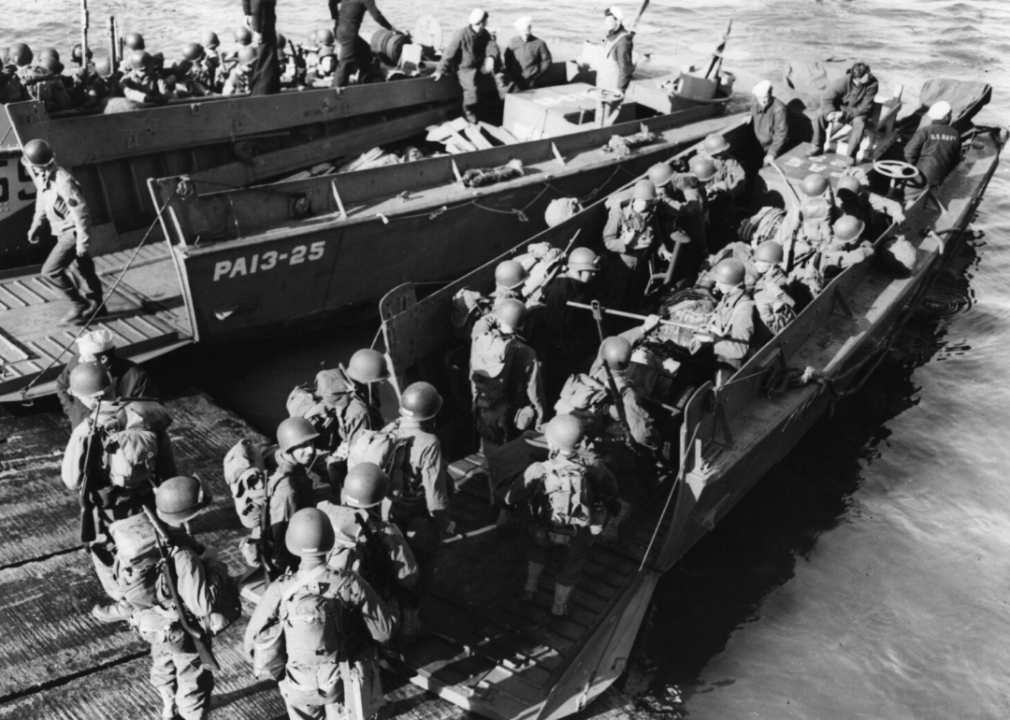
Keystone // Getty Images
Higgins boats whisked many troops to shore
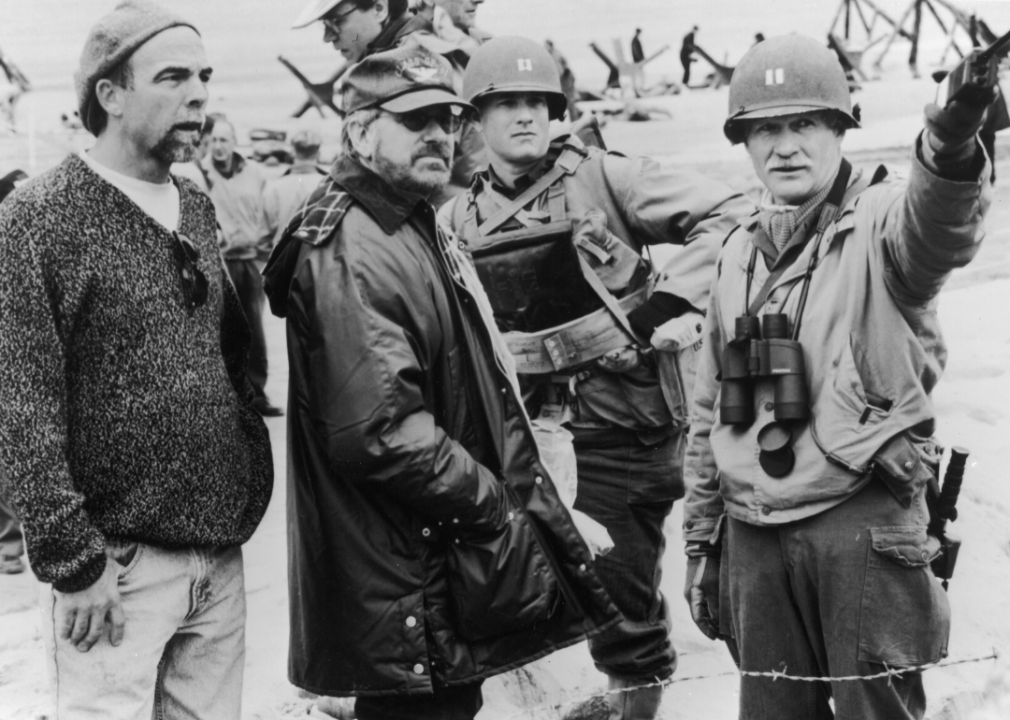
Paramount Pictures/Fotos International // Getty Images
D-Day films have become part of American popular culture
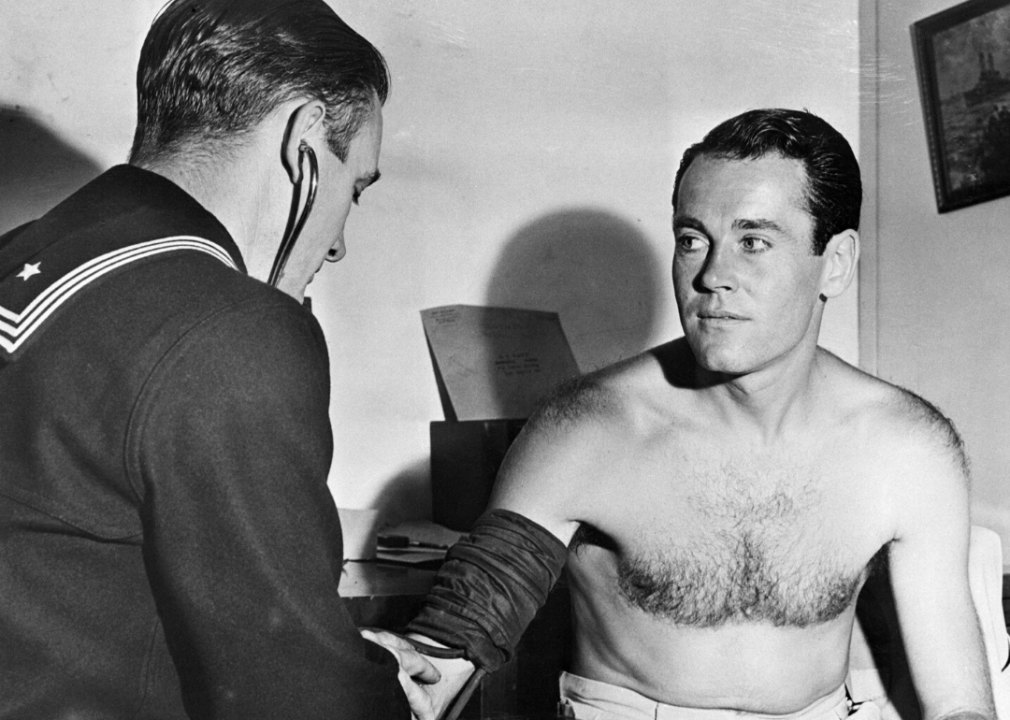
Bettmann // Getty Images
A D-Day movie star served on D-Day
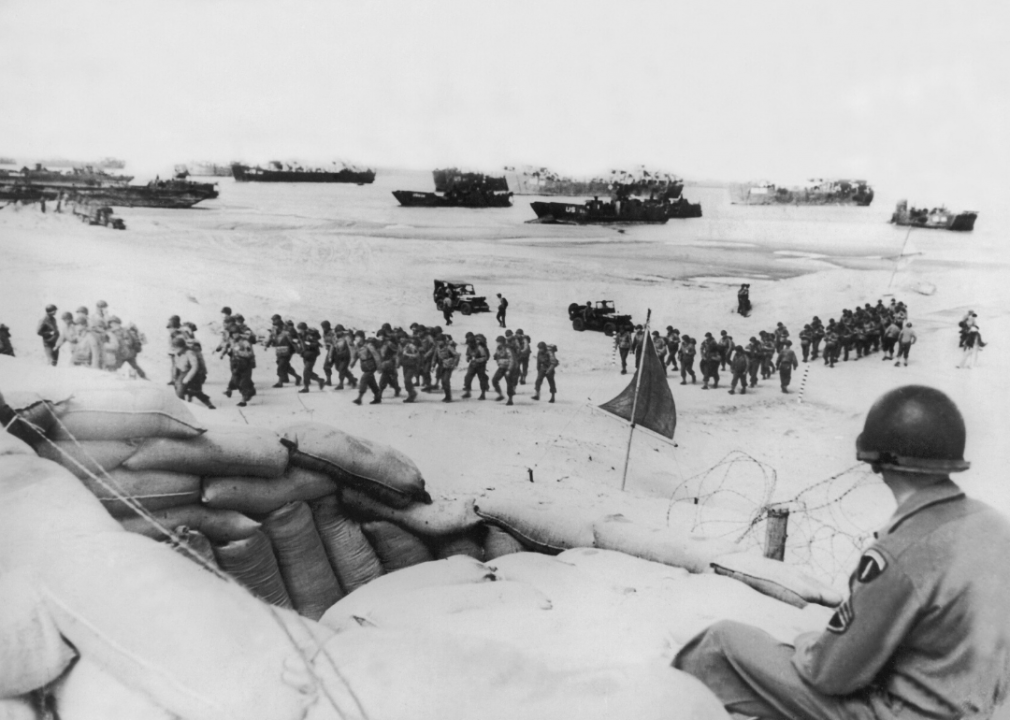
Keystone-France/Gamma-Keystone via Getty Images
Many other famous people served on D-Day
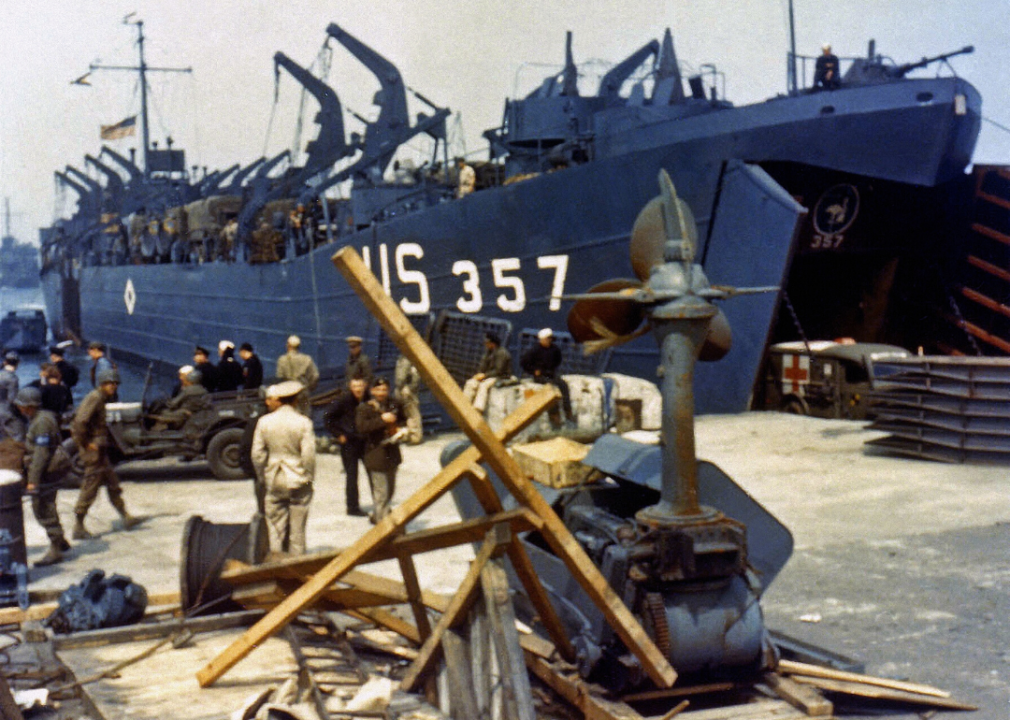
Galerie Bilderwelt // Getty Images
Gargantuan supply shipments preceded the invasion
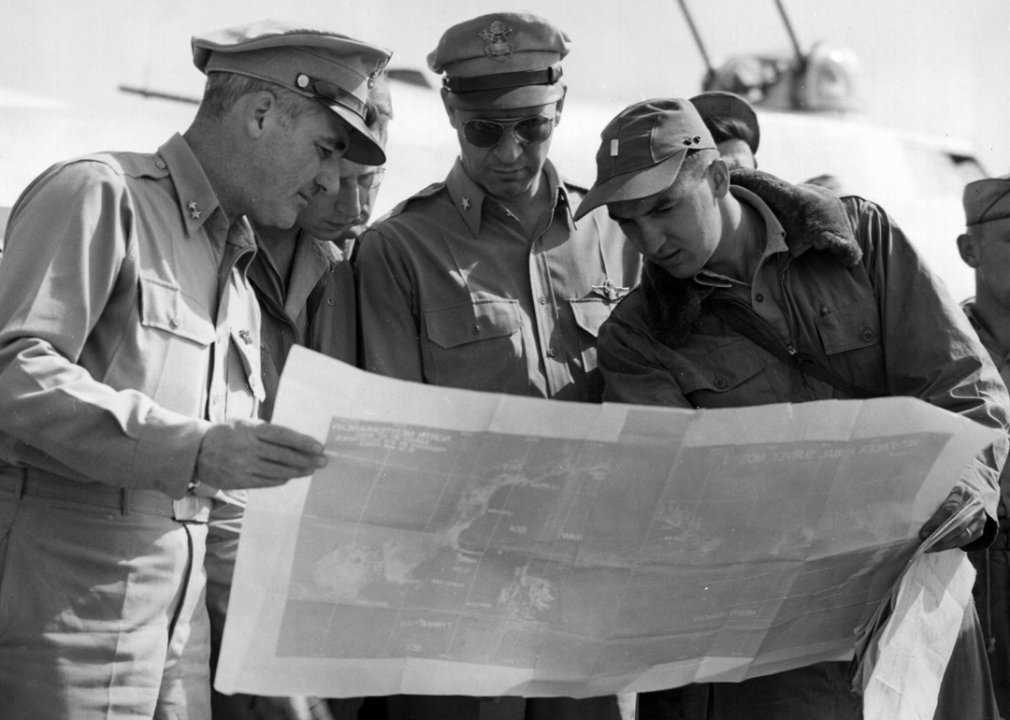
Mondadori // Getty Images
17 million maps were needed
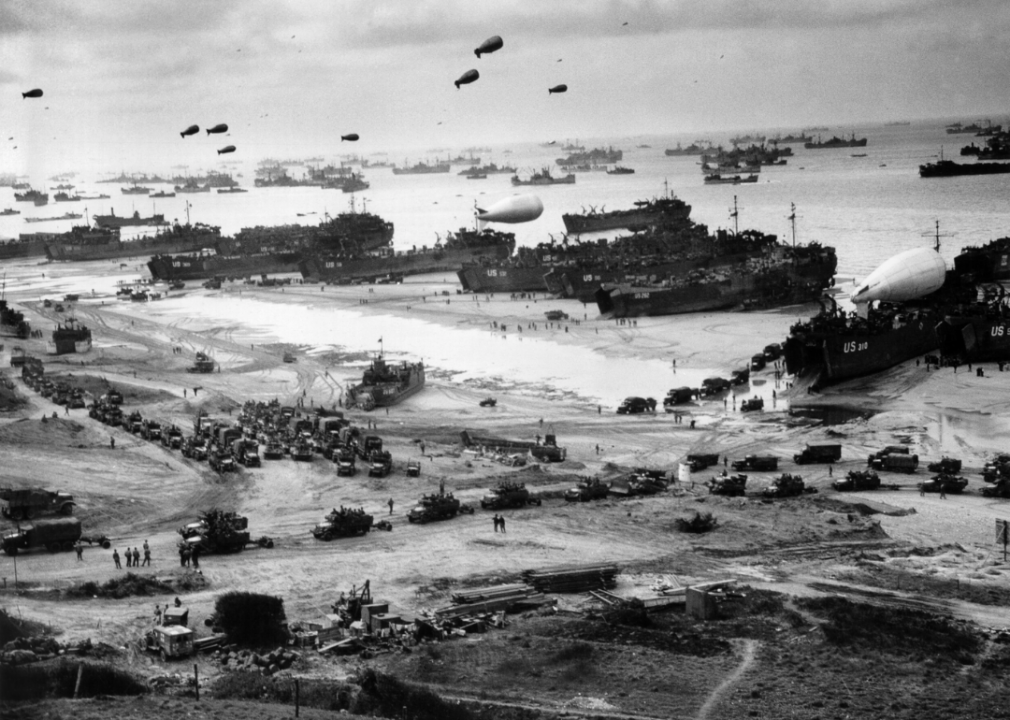
U.S. Coast Guard // Wikimedia Commons
The landings opened a supply line
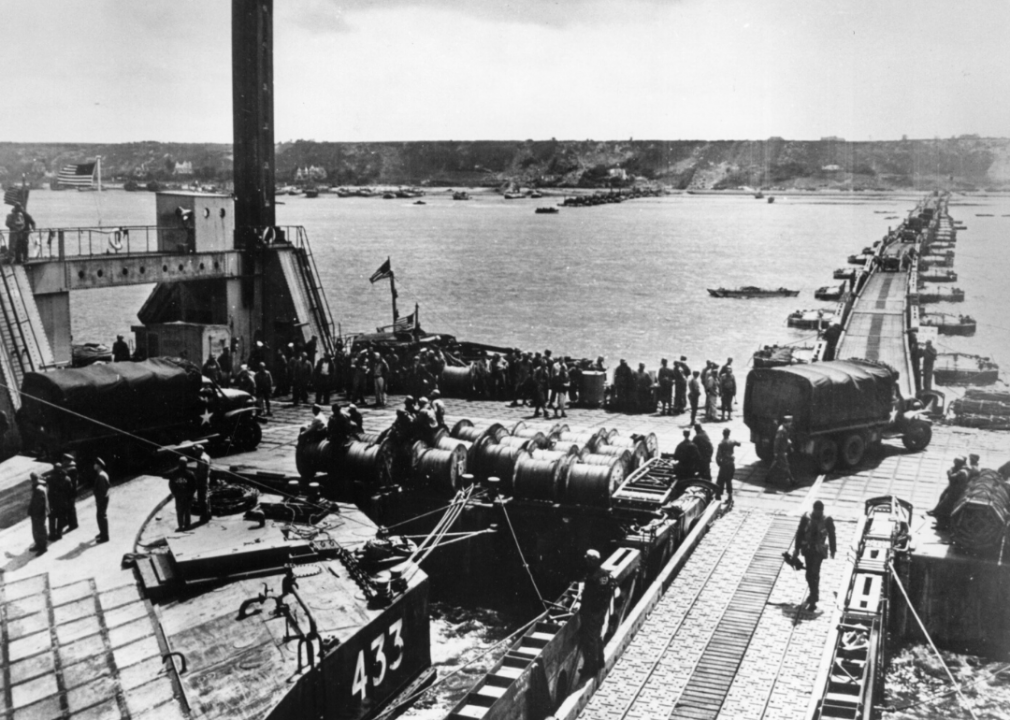
Three Lions // Getty Images
Artificial harbors supported the supply lines
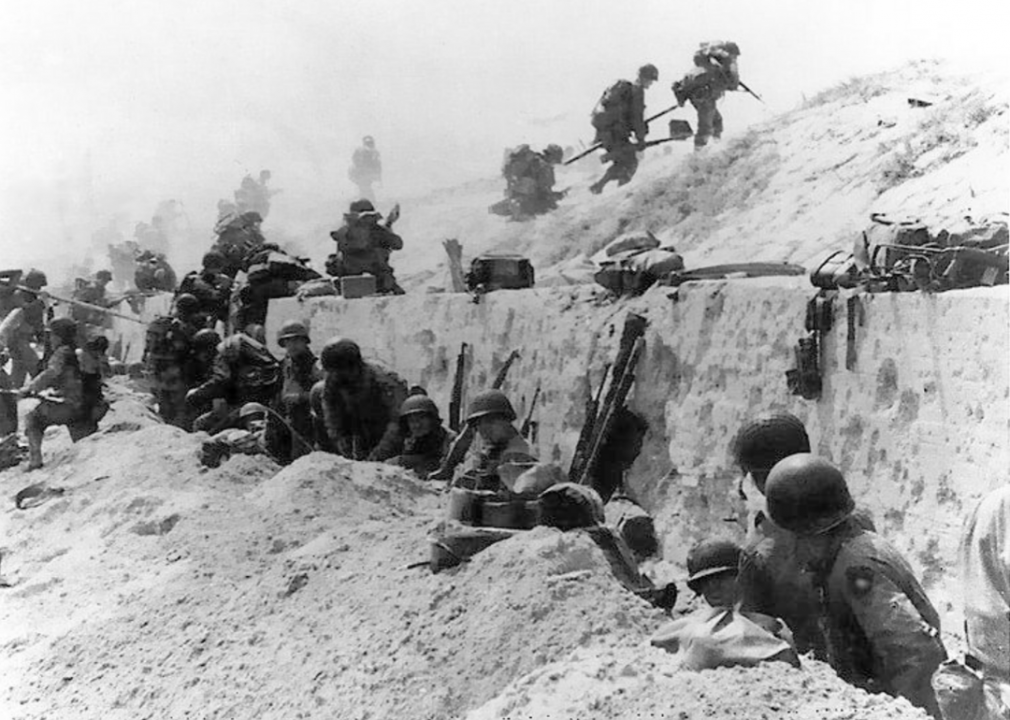
U.S. Army Signal Corps // Wikimedia Commons
The Army attacked with 6 divisions
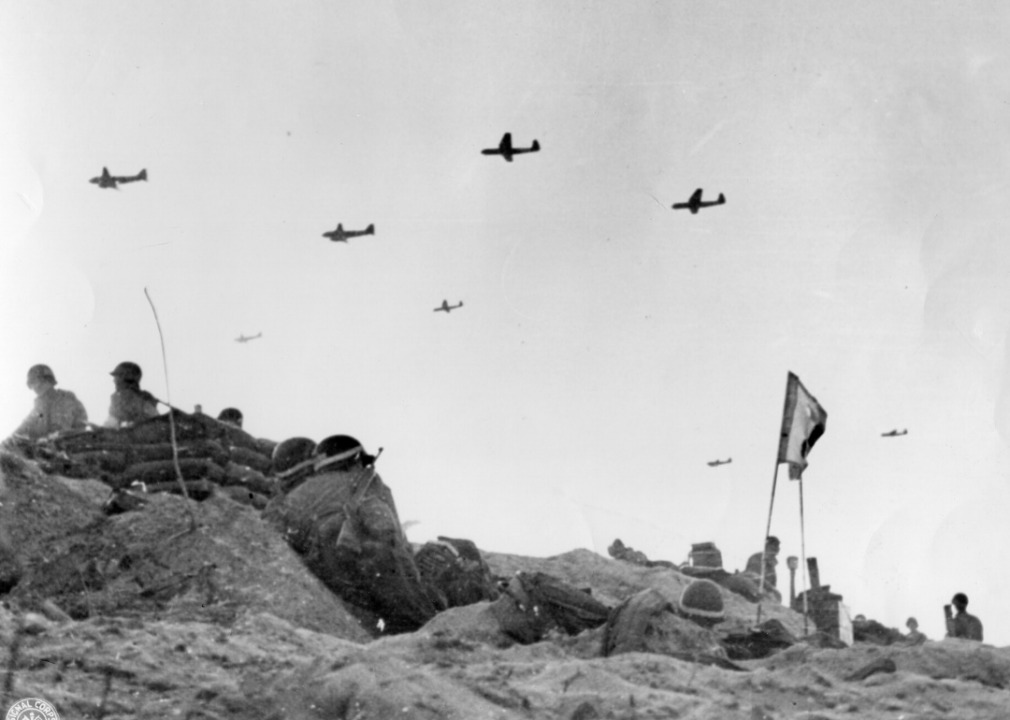
PhotoQuest // Getty Images
500 gliders took to the air
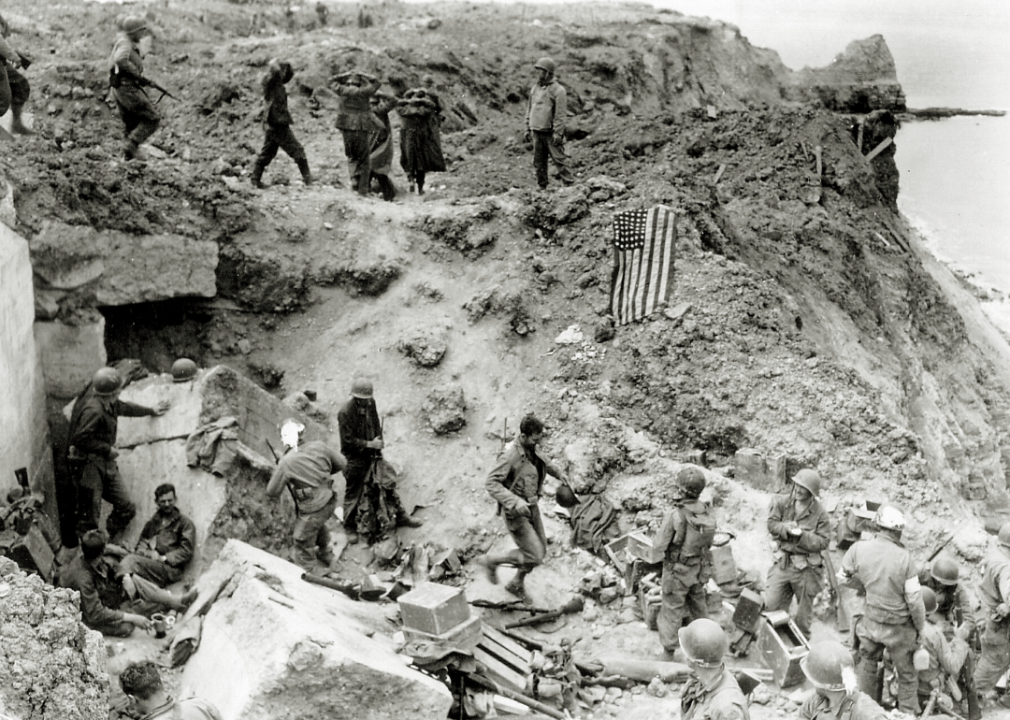
Galerie Bilderwelt // Getty Images
A separate battle raged high above the beach
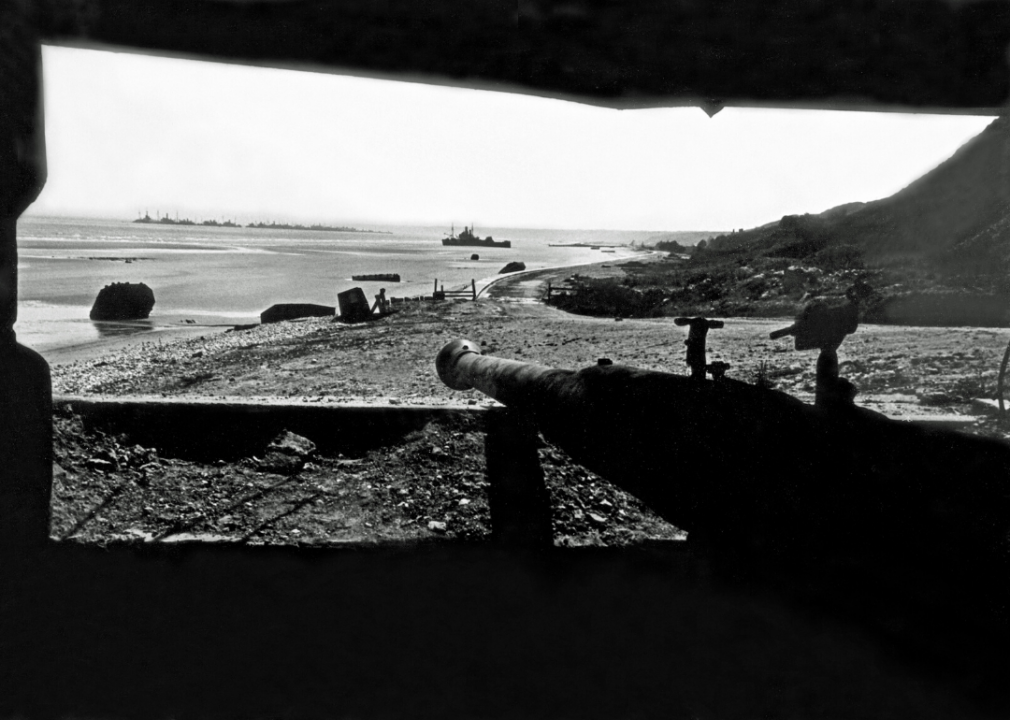
Tony Vaccaro // Getty Images
The mighty Atlantic Wall fell in a day
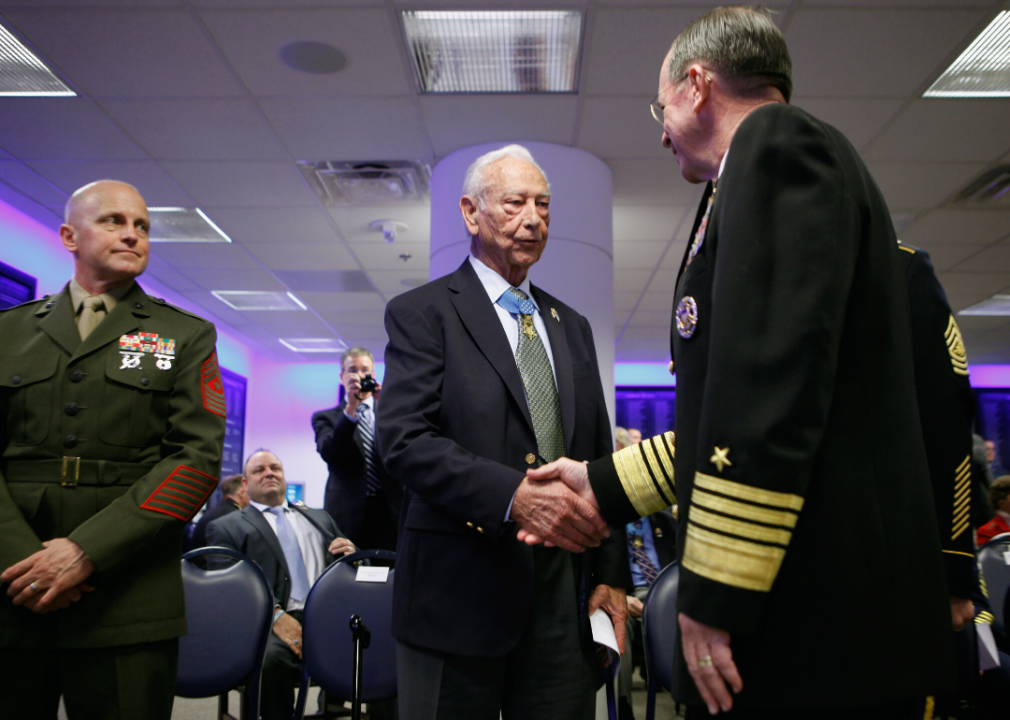
Chip Somodevilla // Getty Images
The day produced 12 Medals of Honor
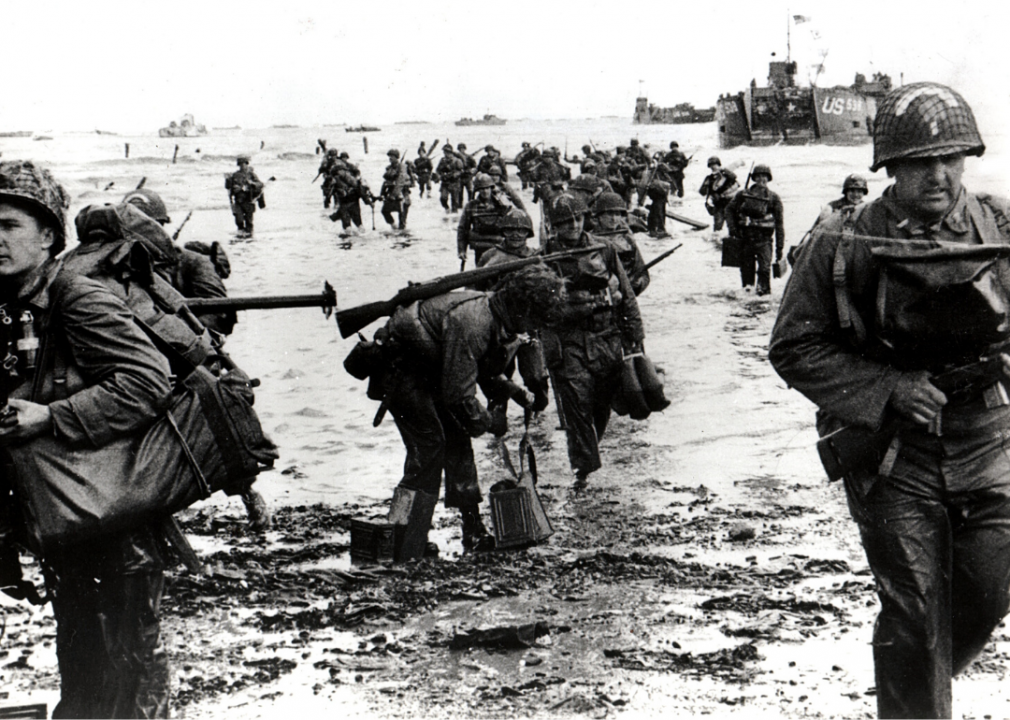
Photo12/UIG // Getty Images
Heavy packs encumbered troops
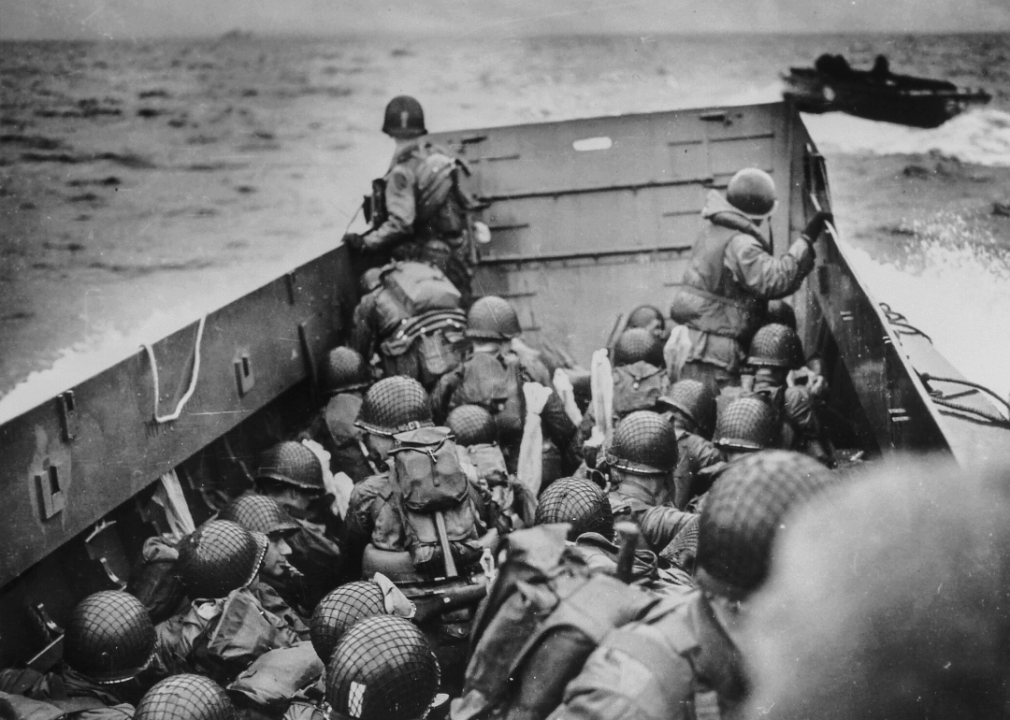
U.S. Coast Guard/Interim Archives // Getty Images
Boat ramps served as shields
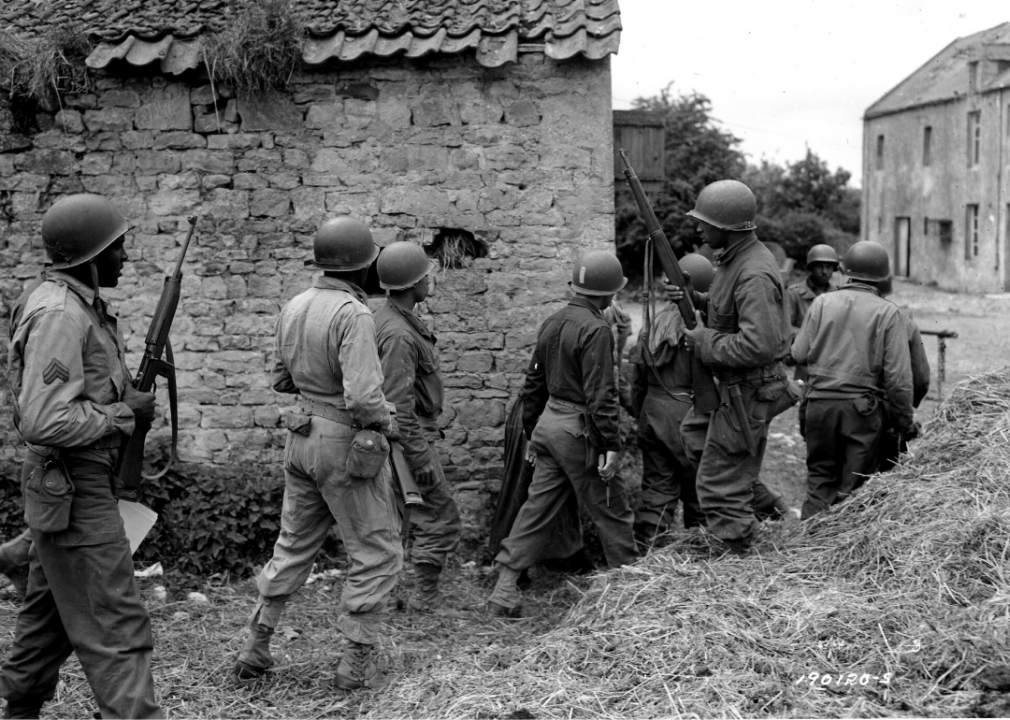
PhotoQuest // Getty Images
One African American combat unit participated
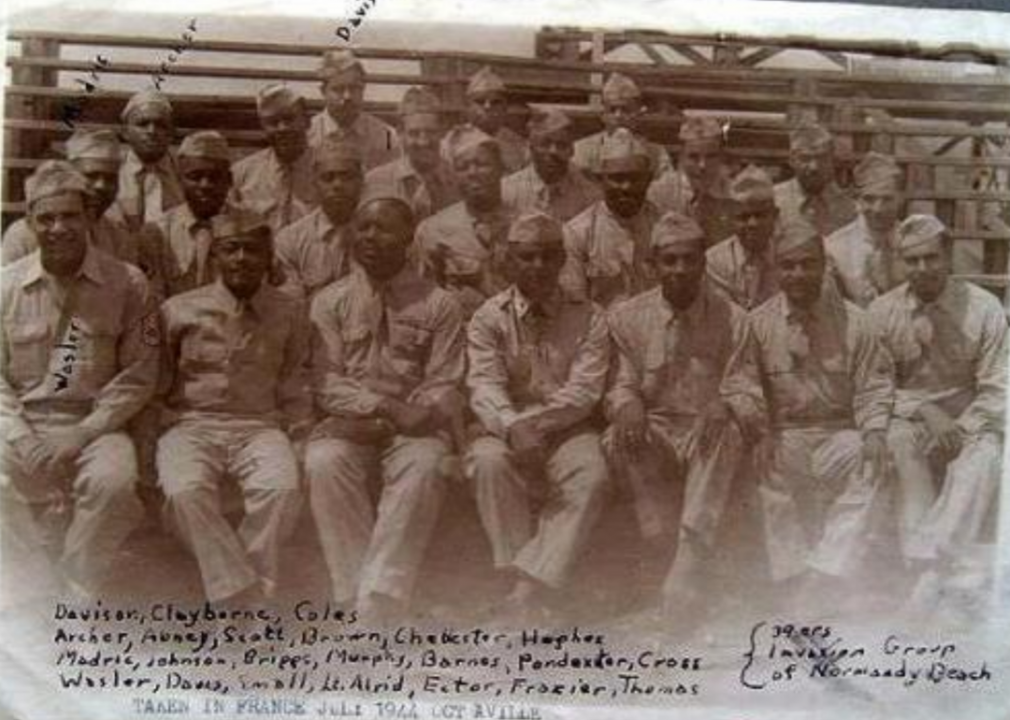
John Chambless // U.S. Air Force
That unit’s medic is an unsung hero
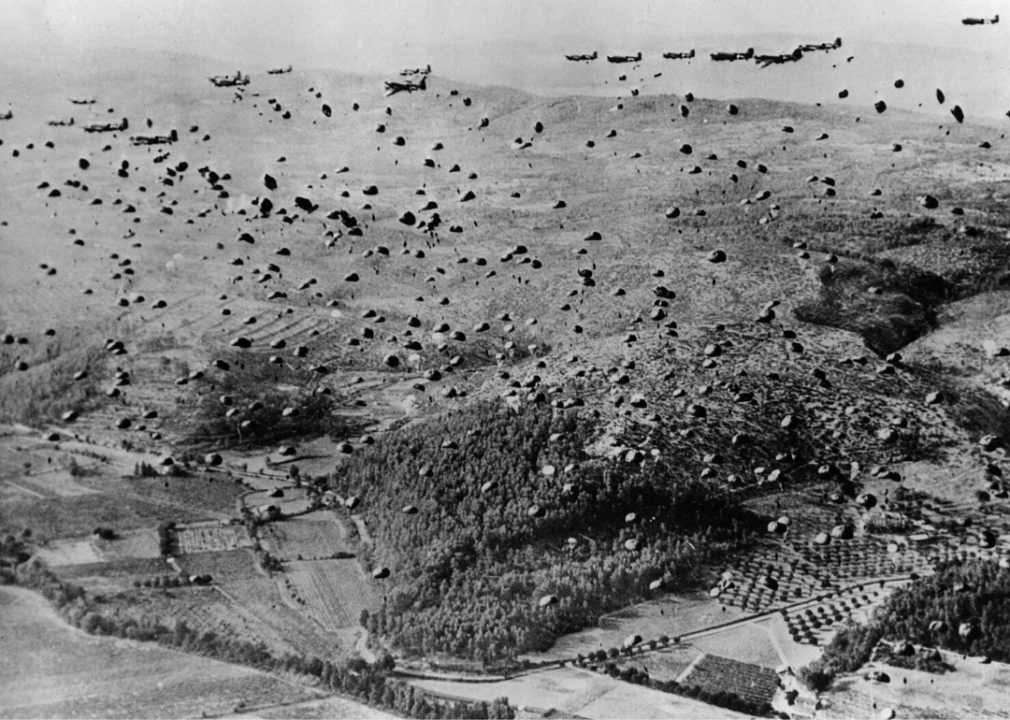
Keystone/Hulton Archive // Getty Images